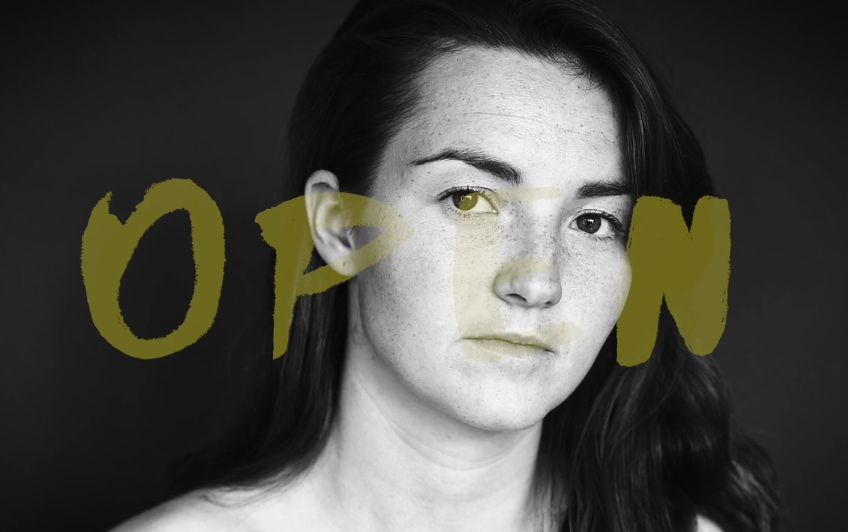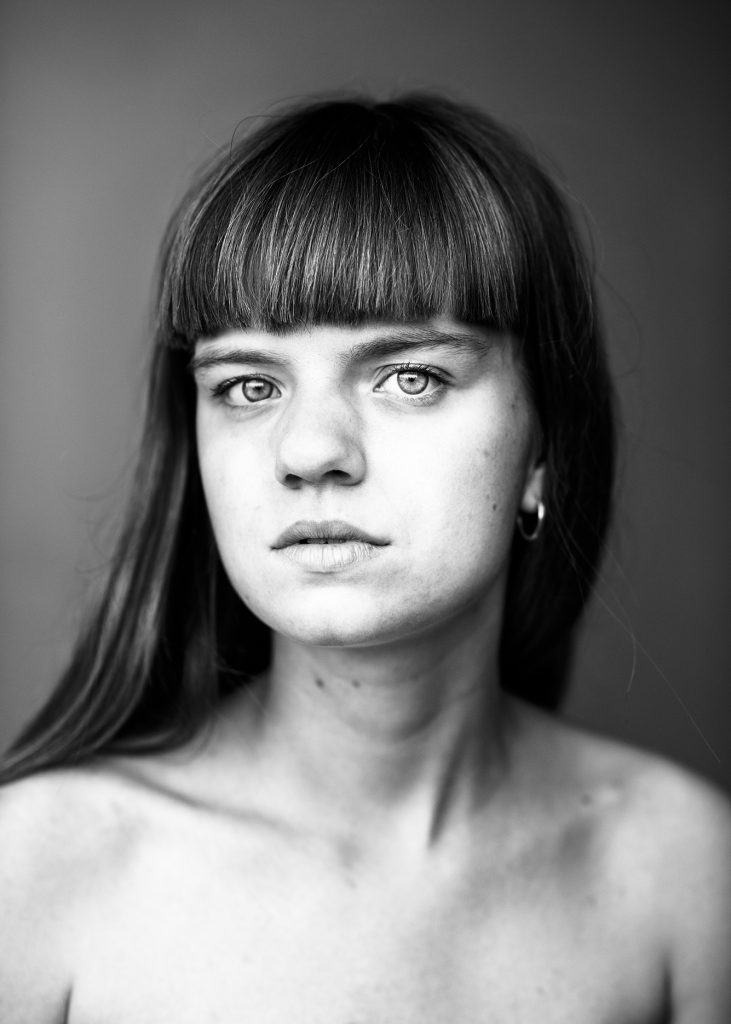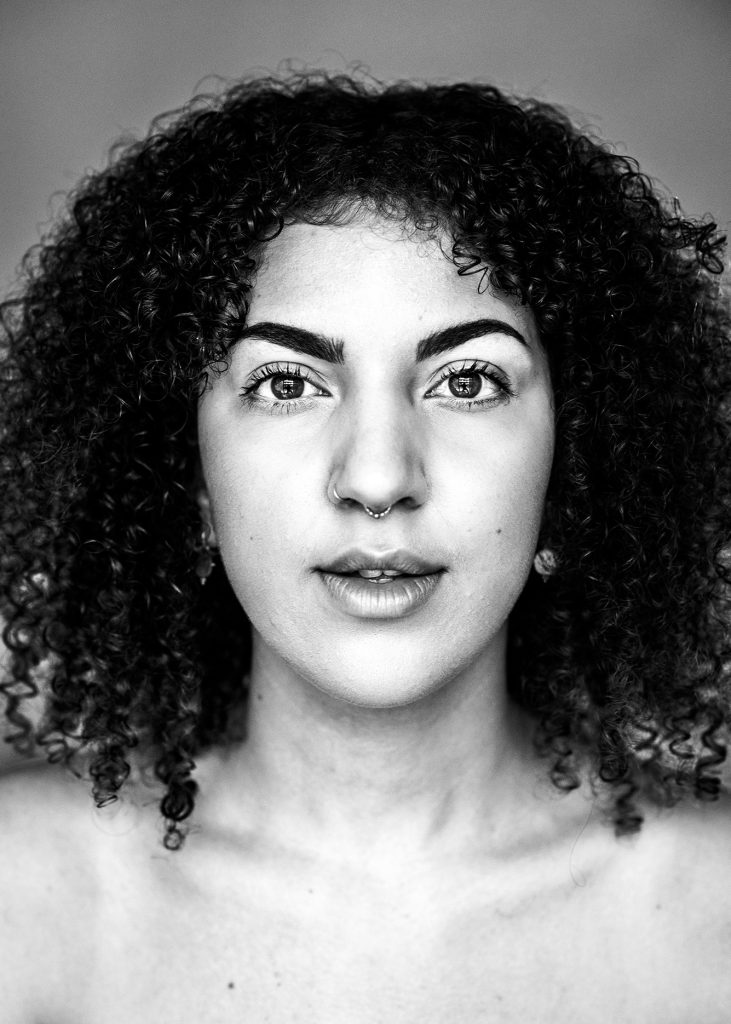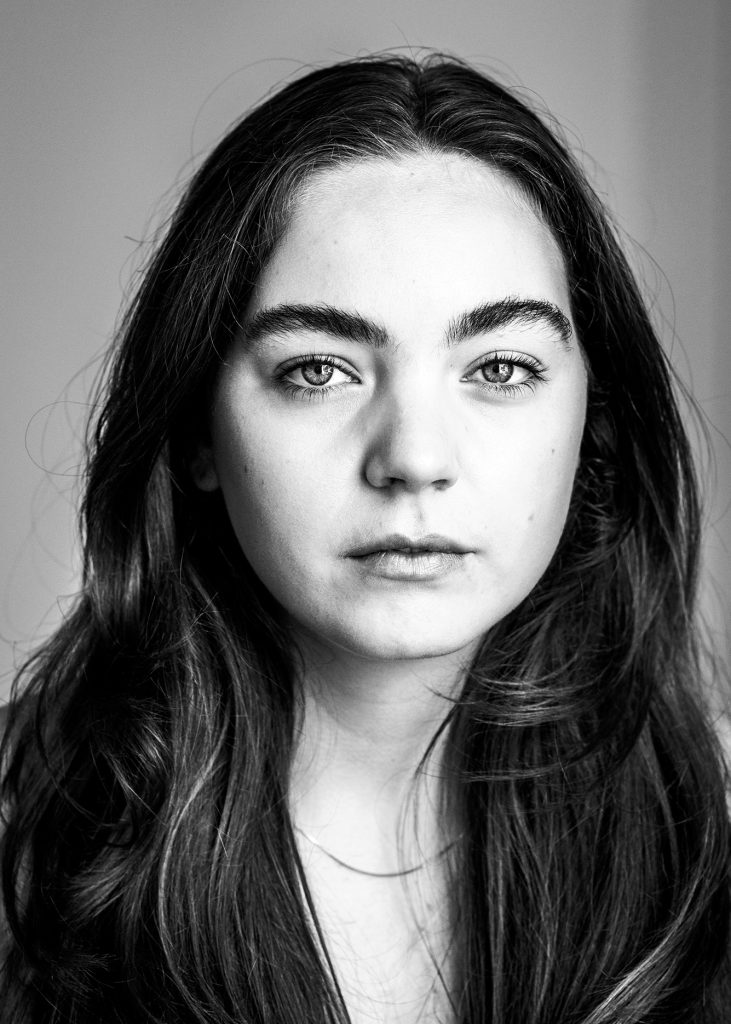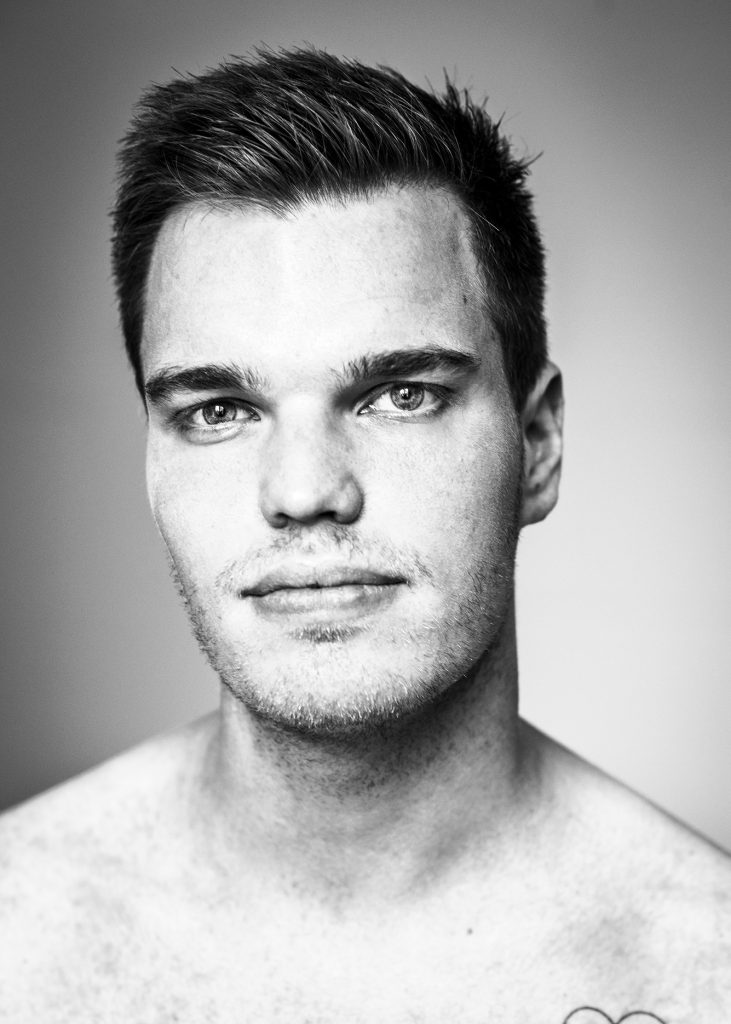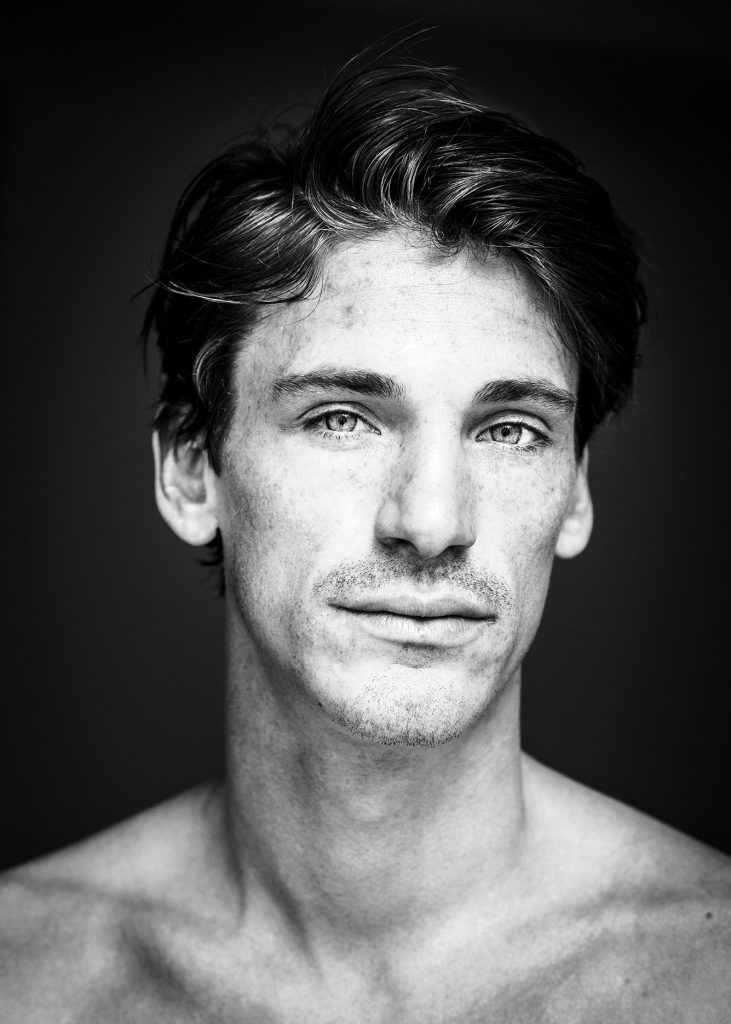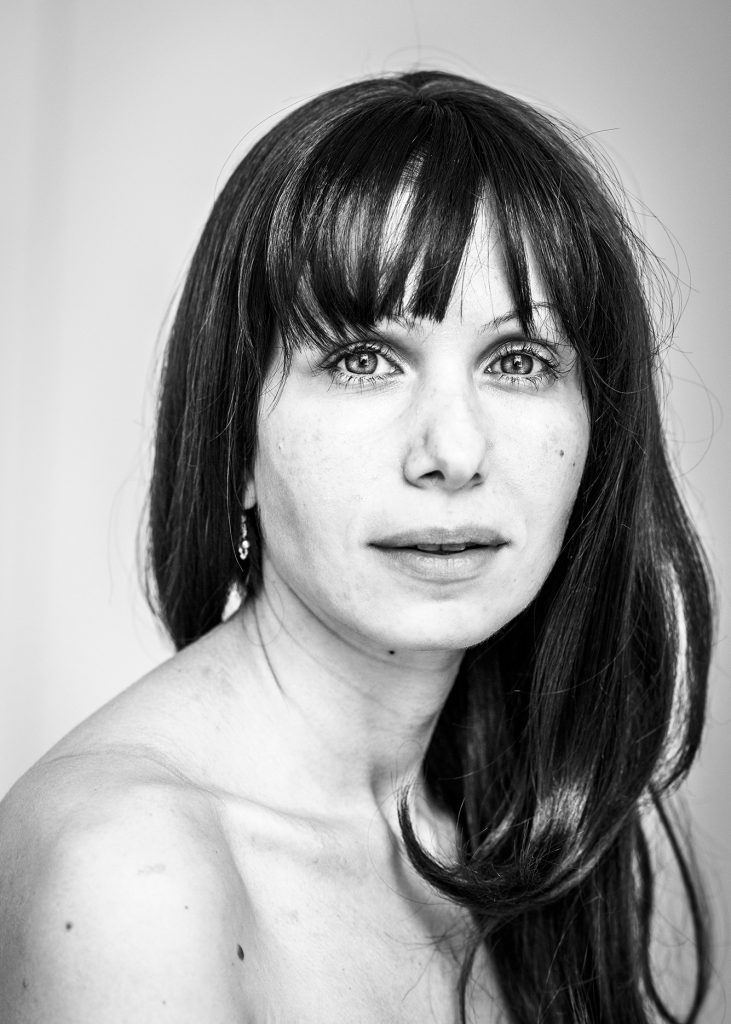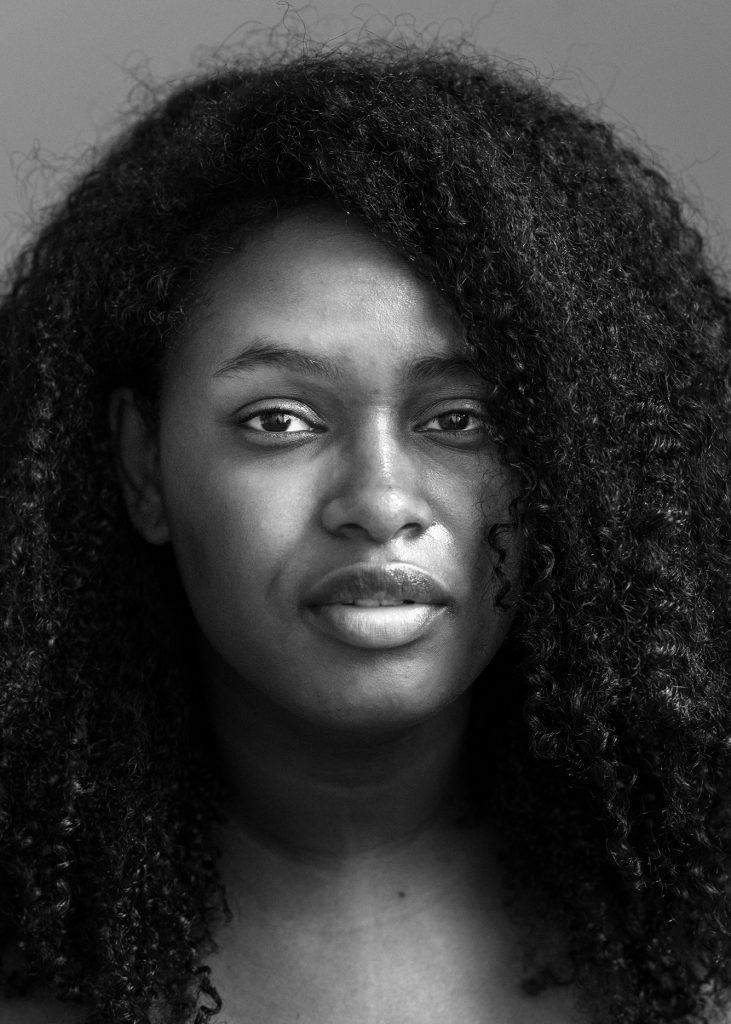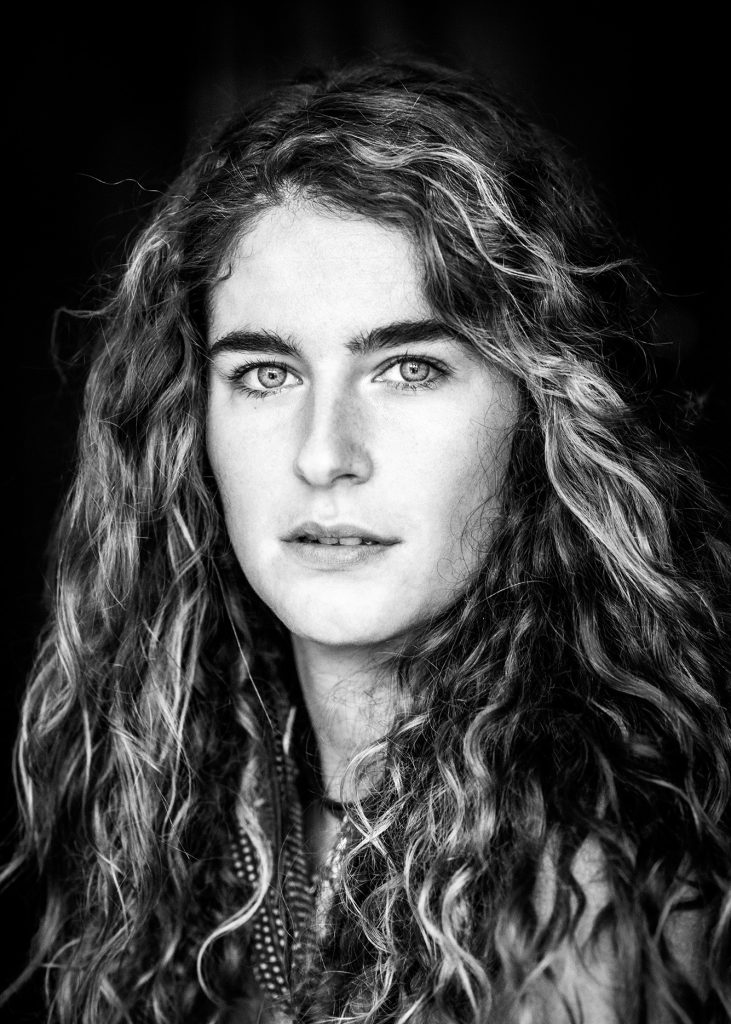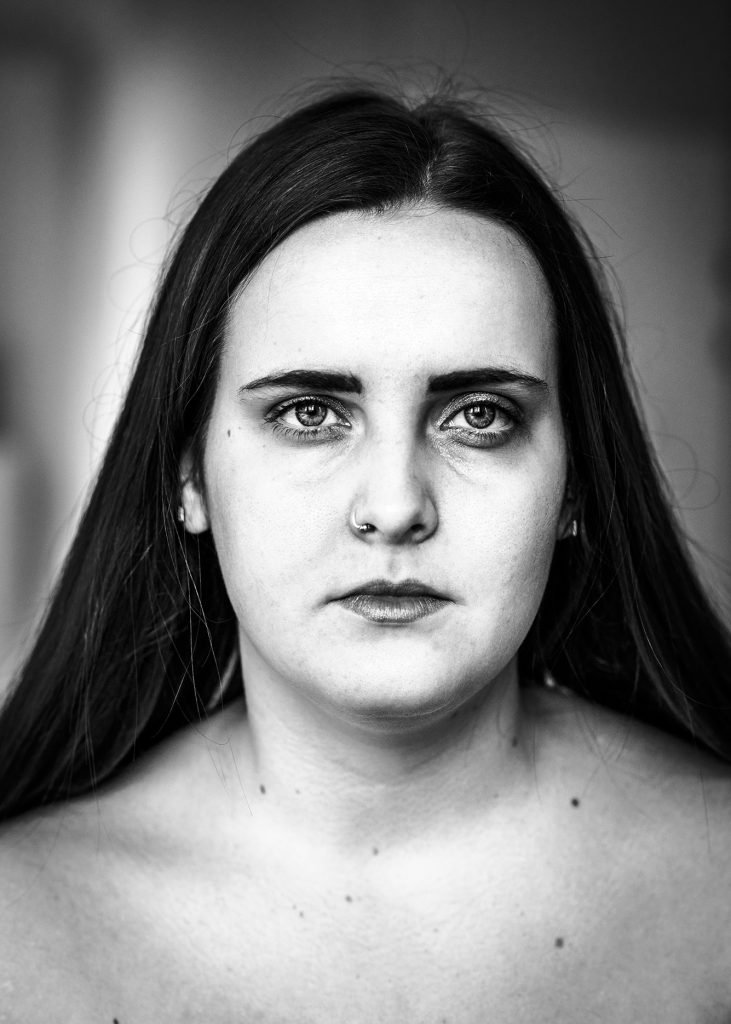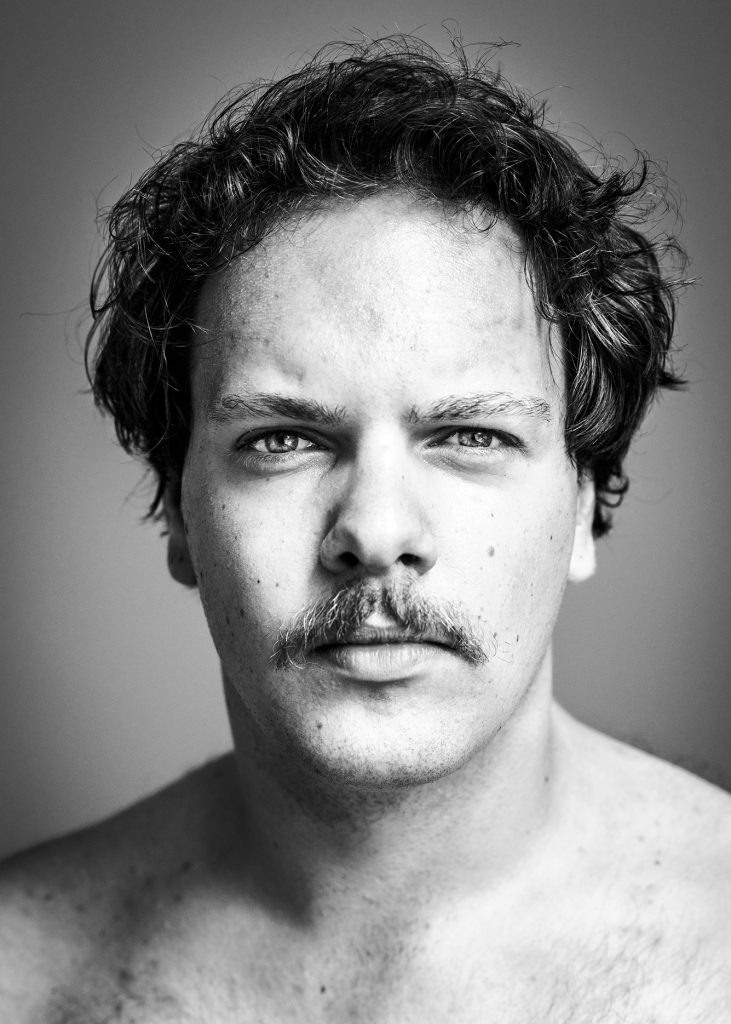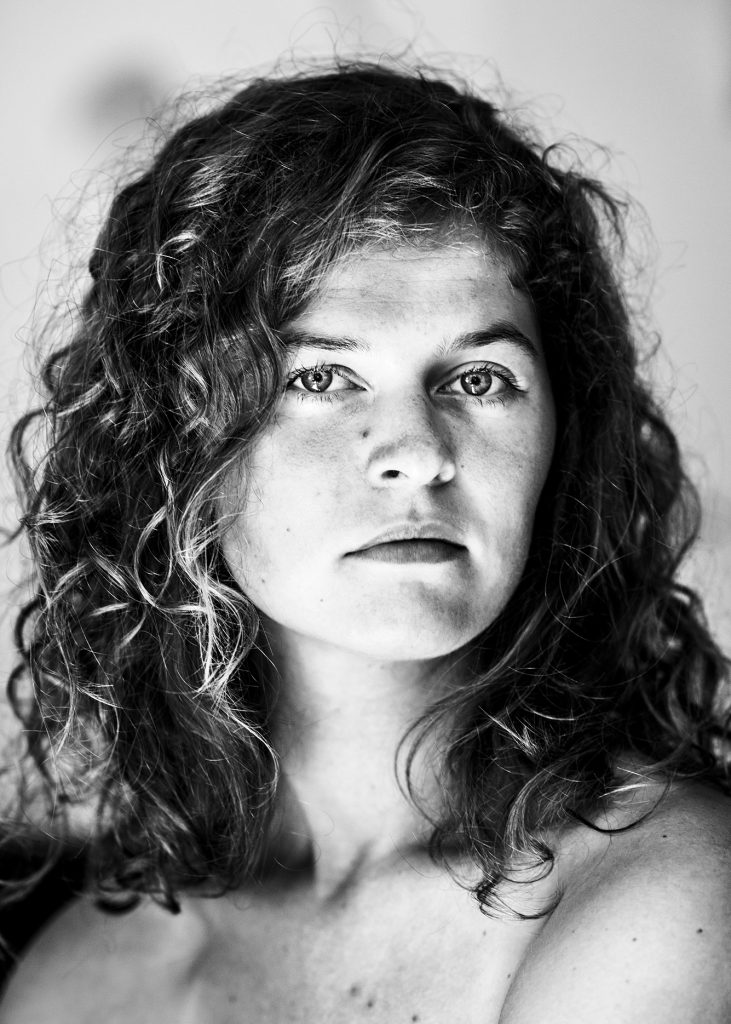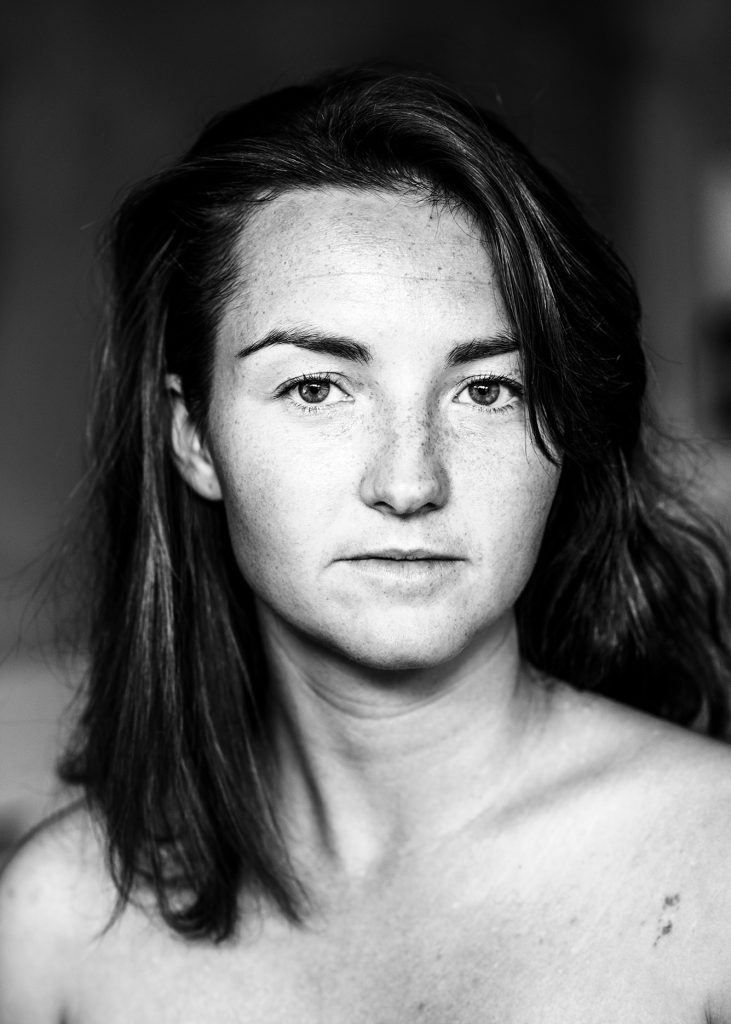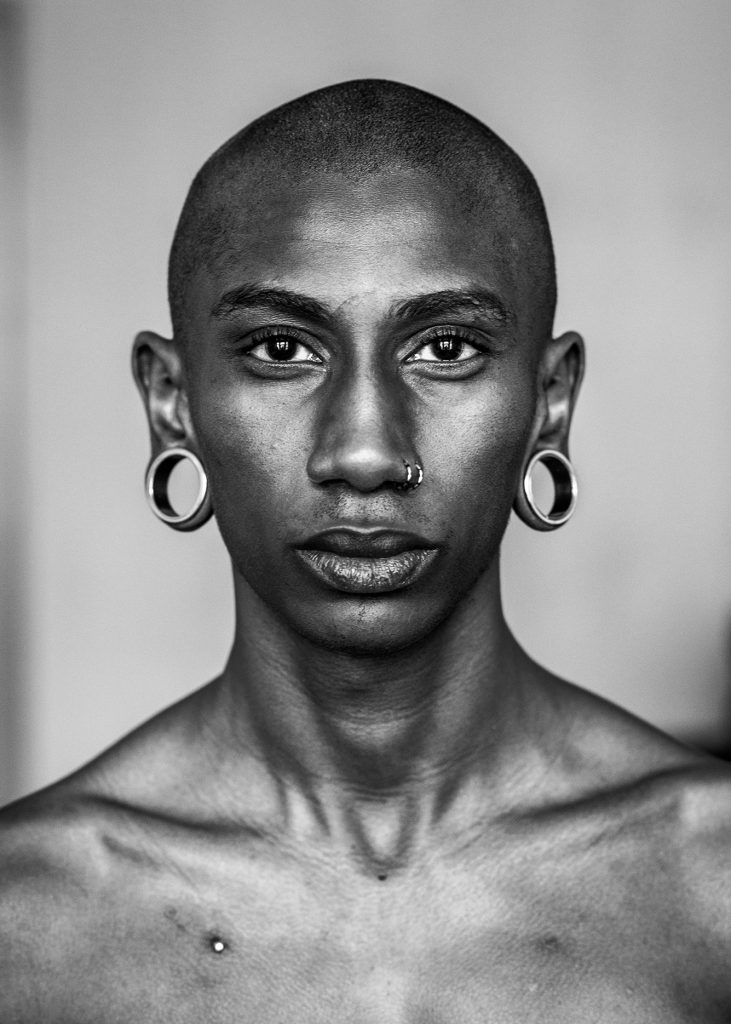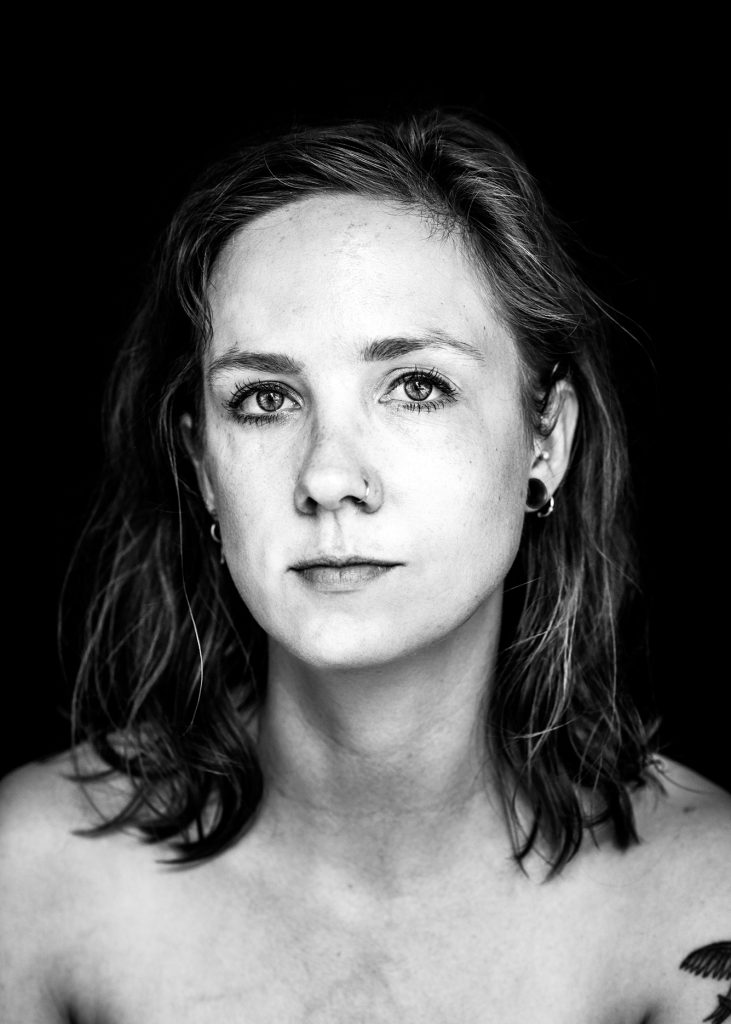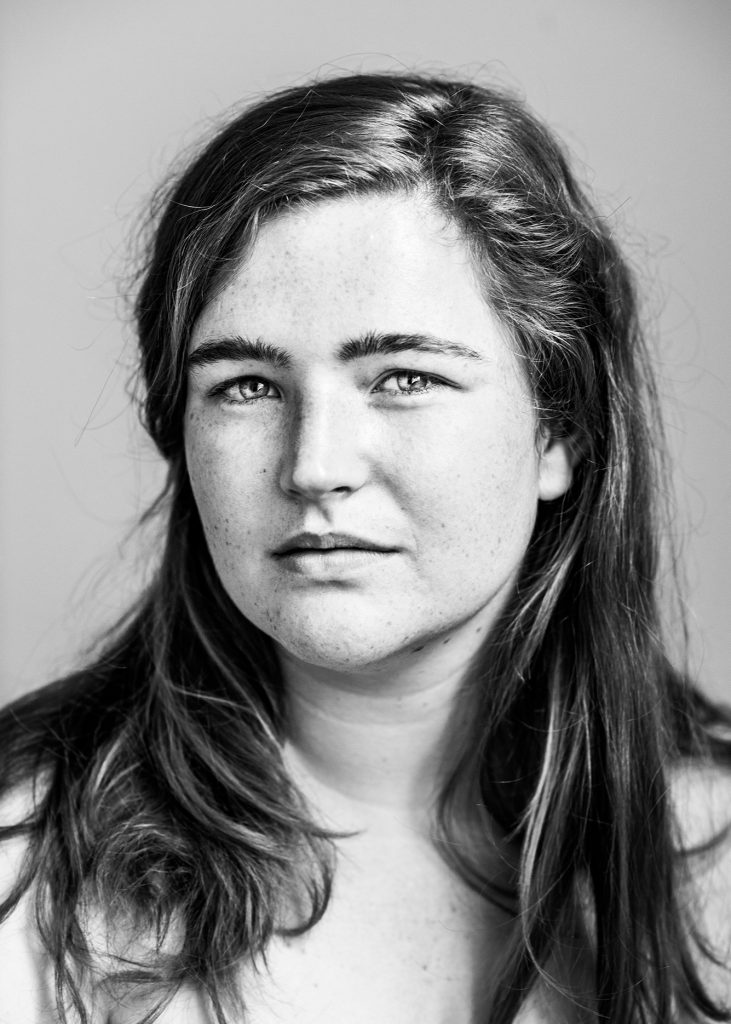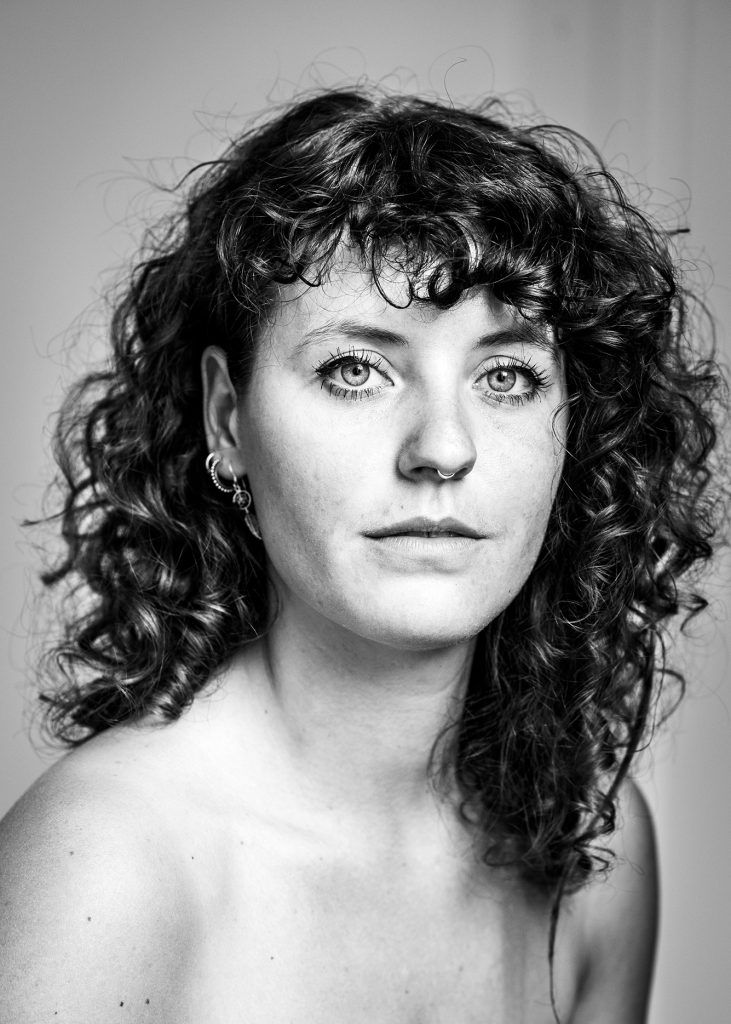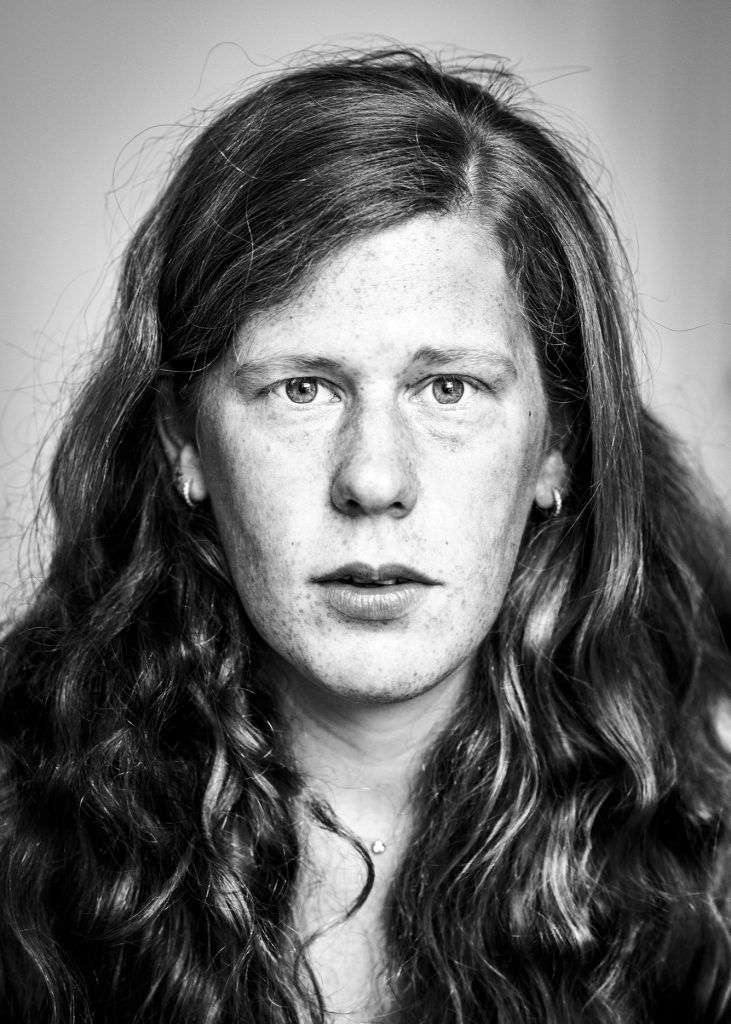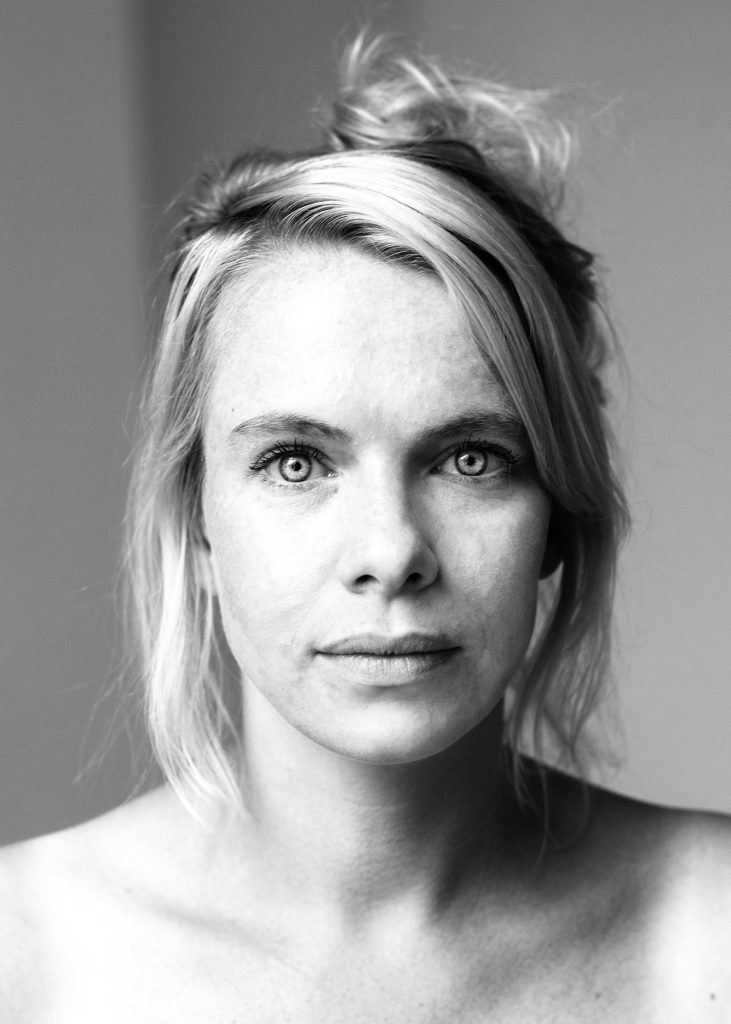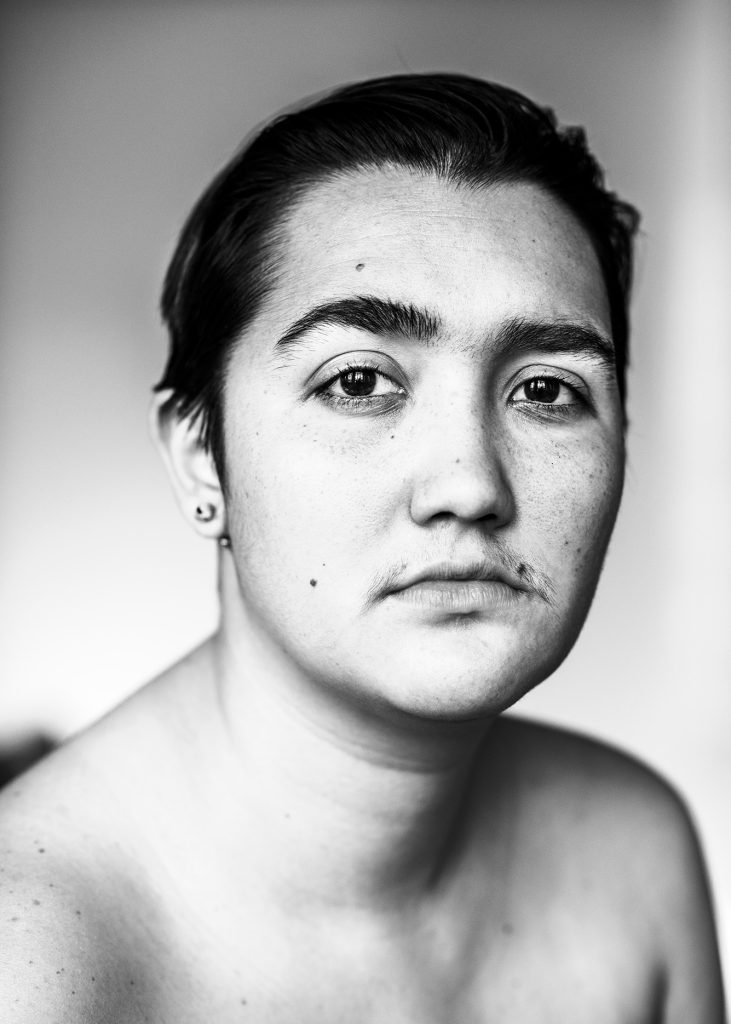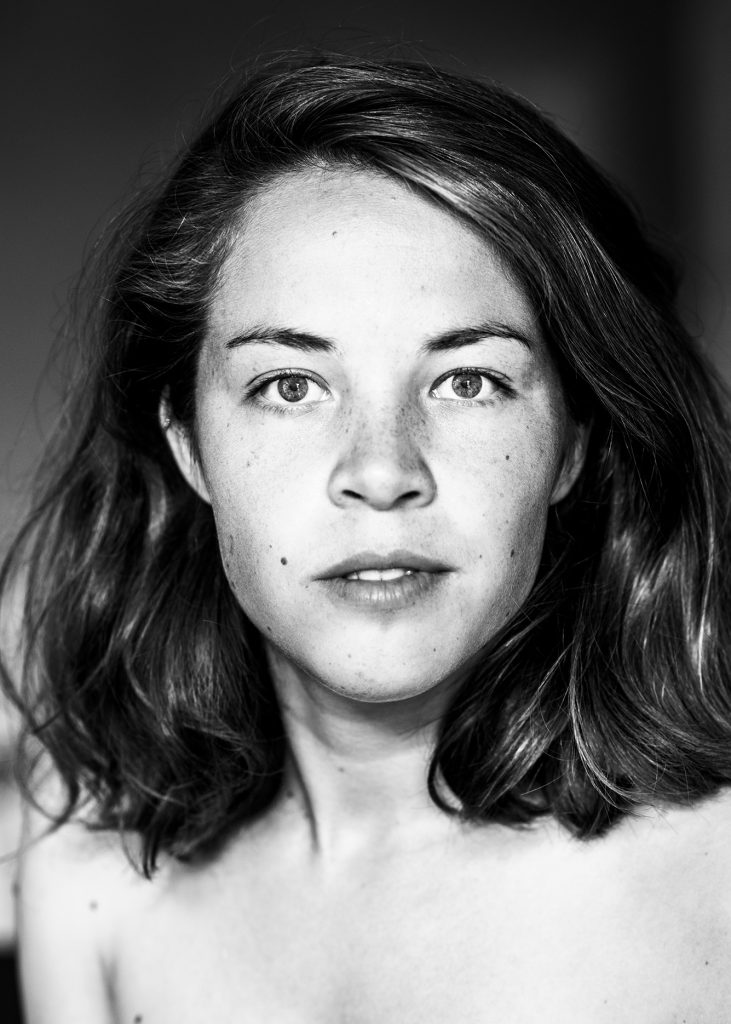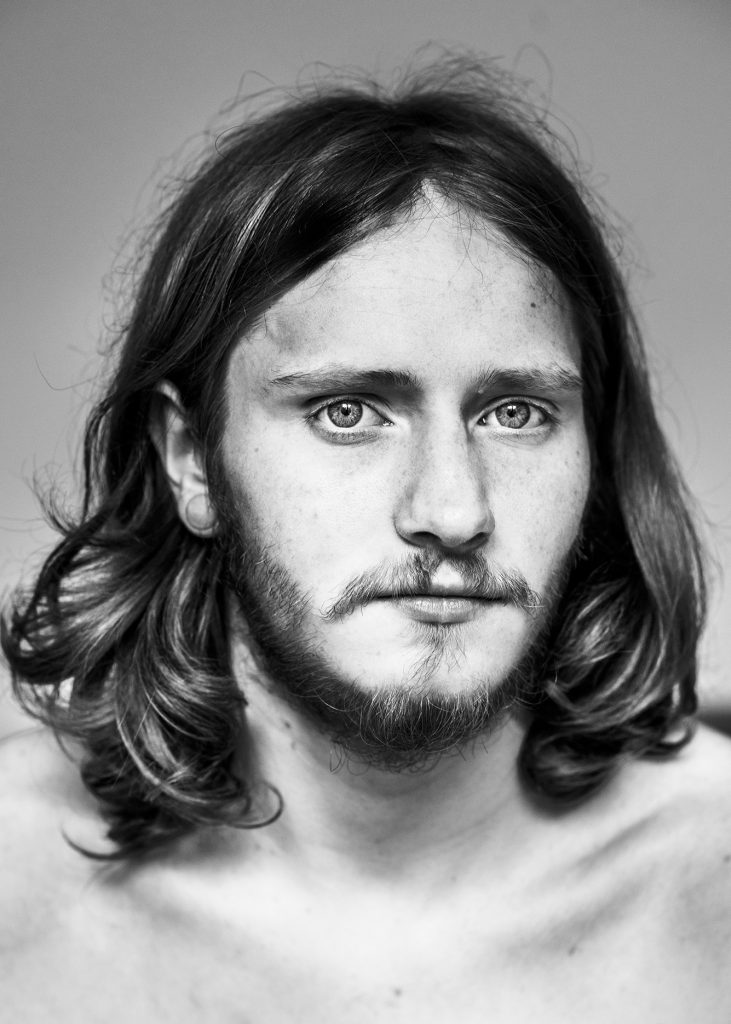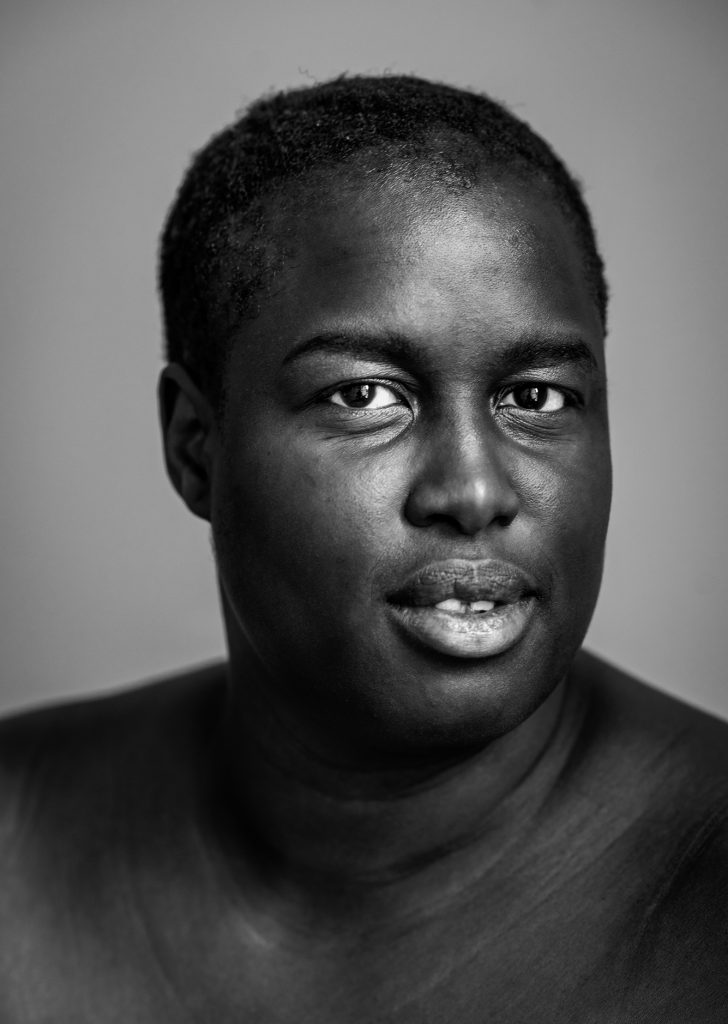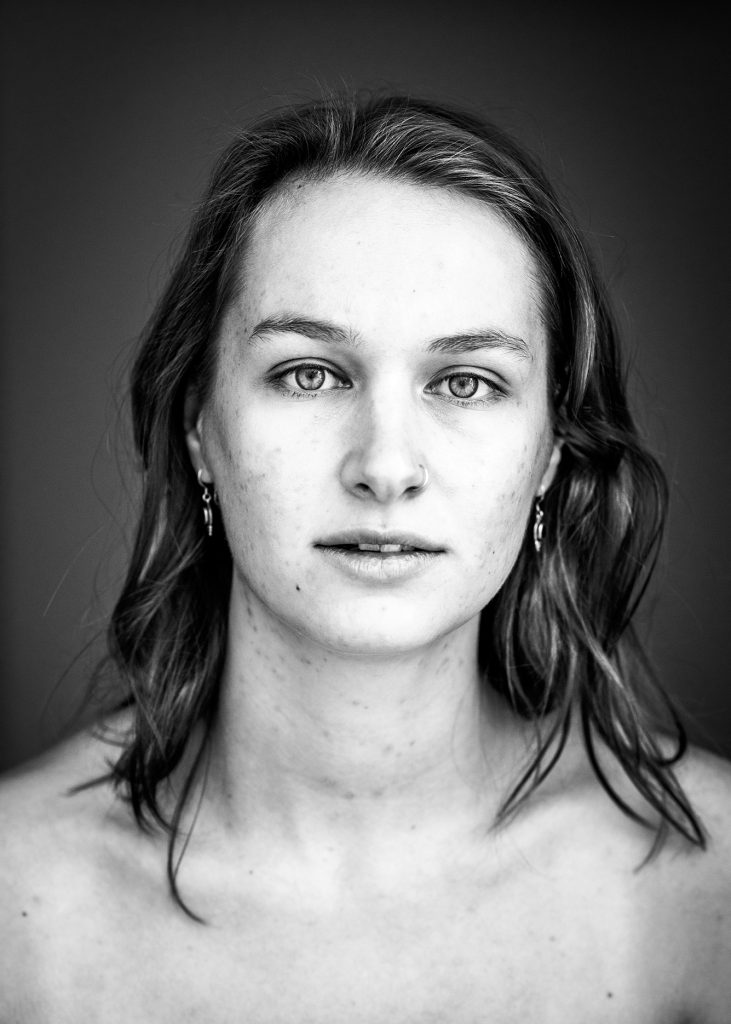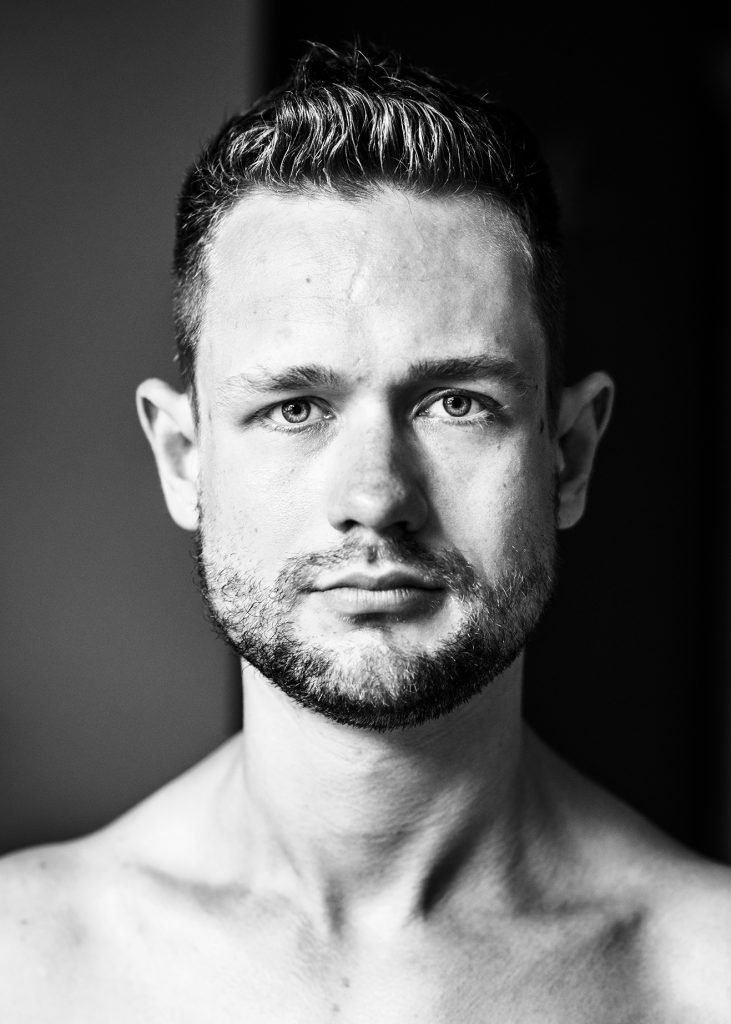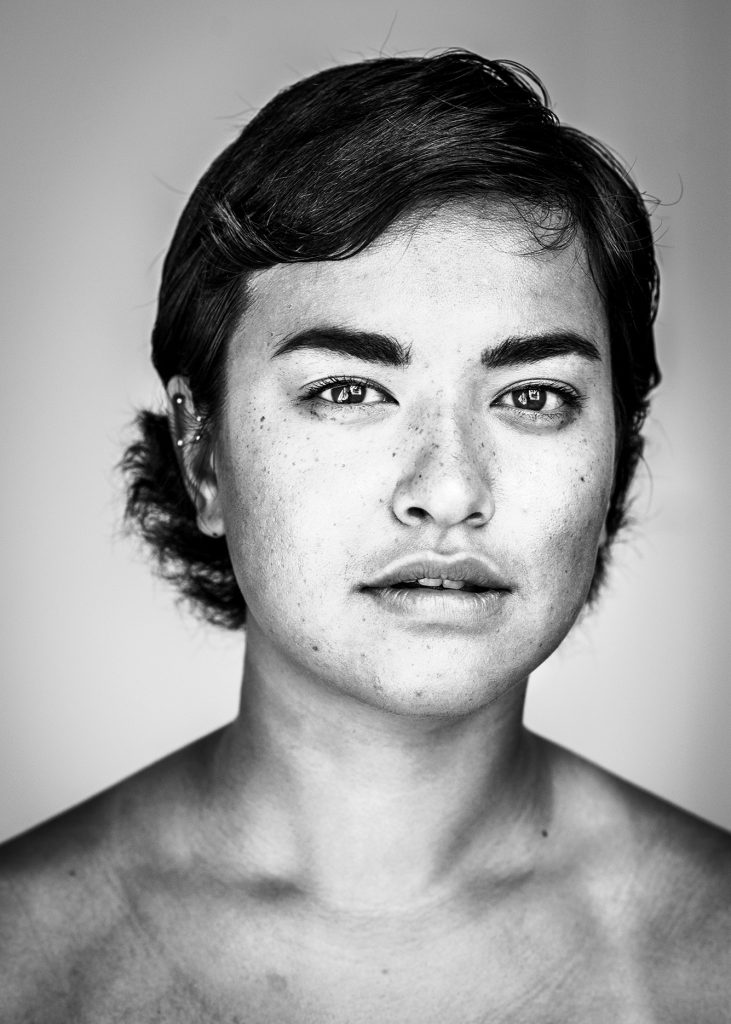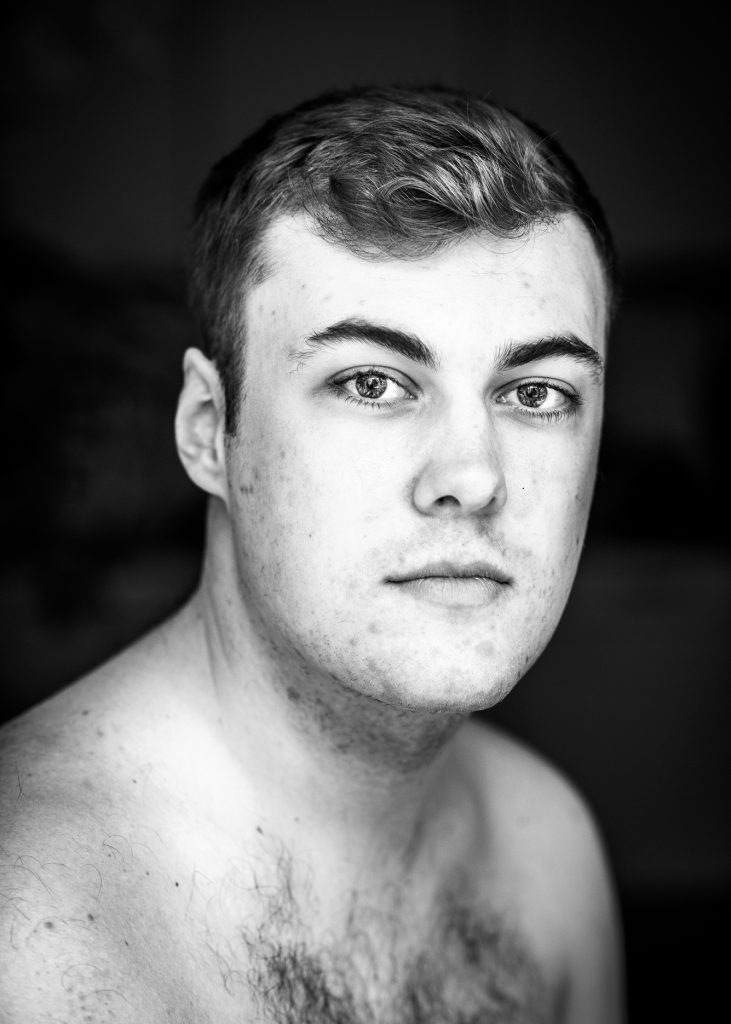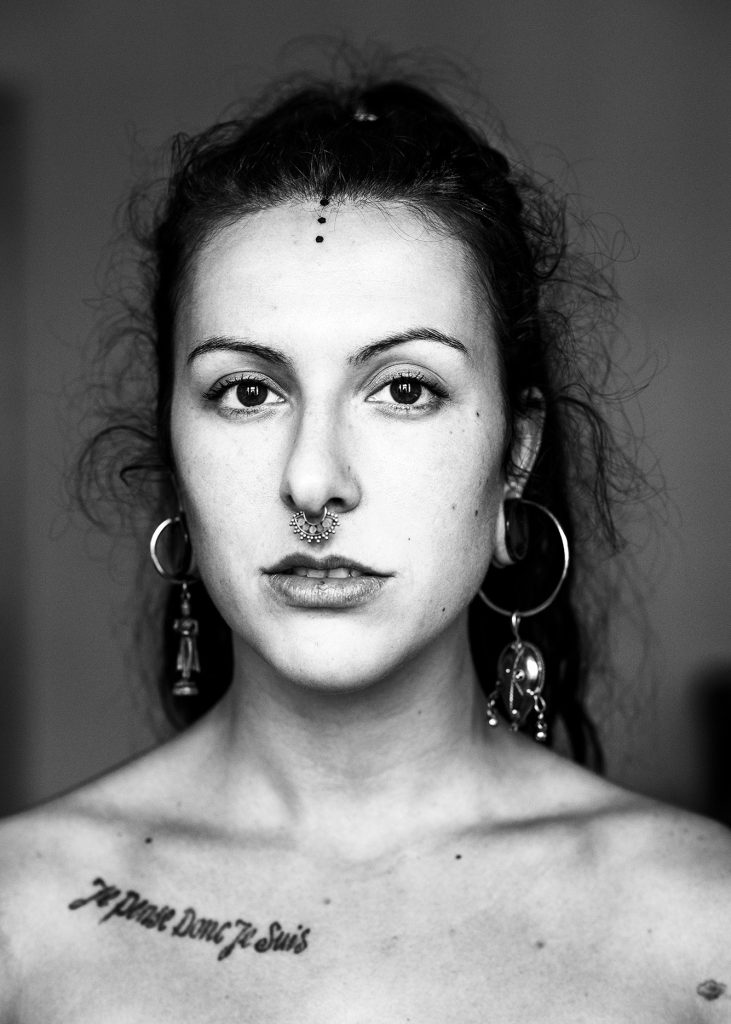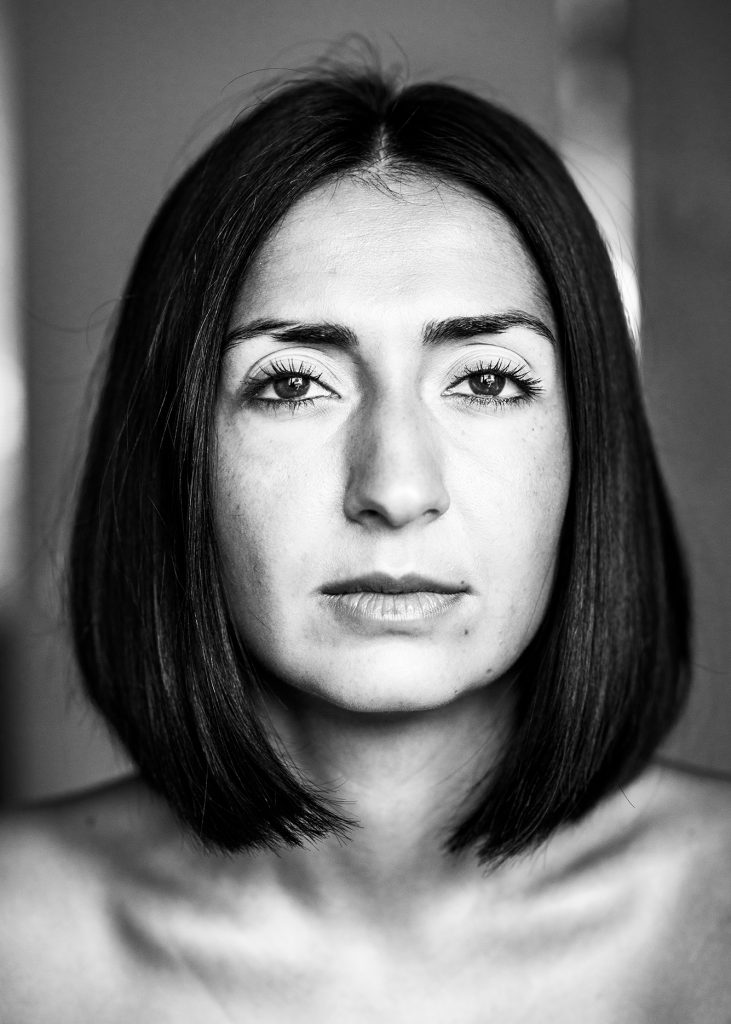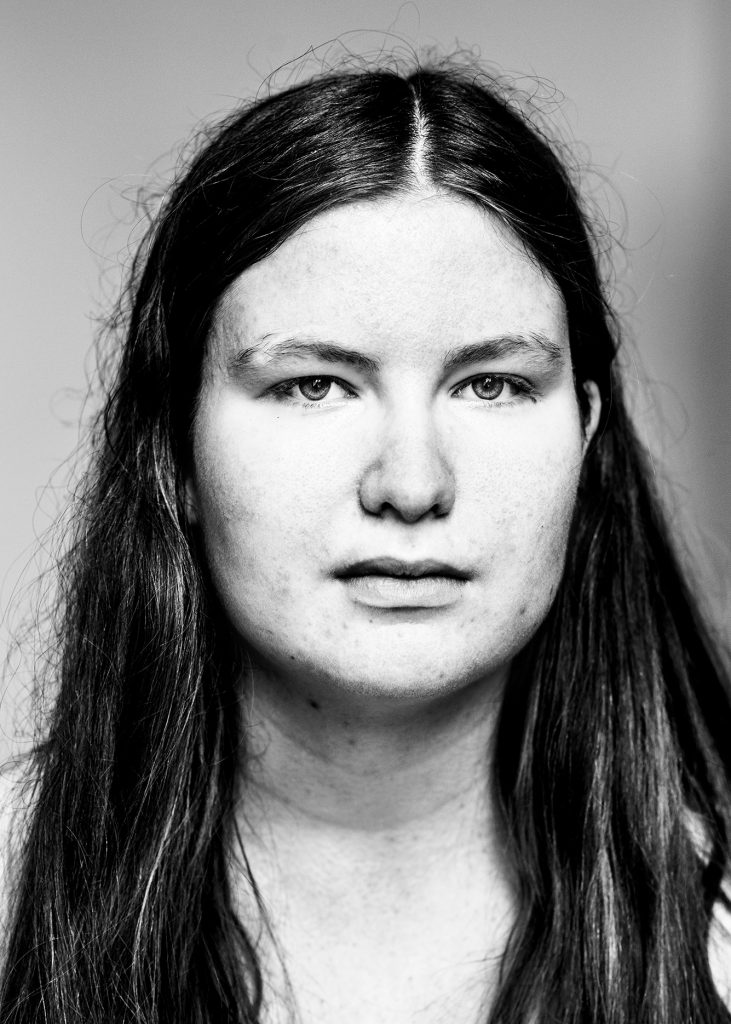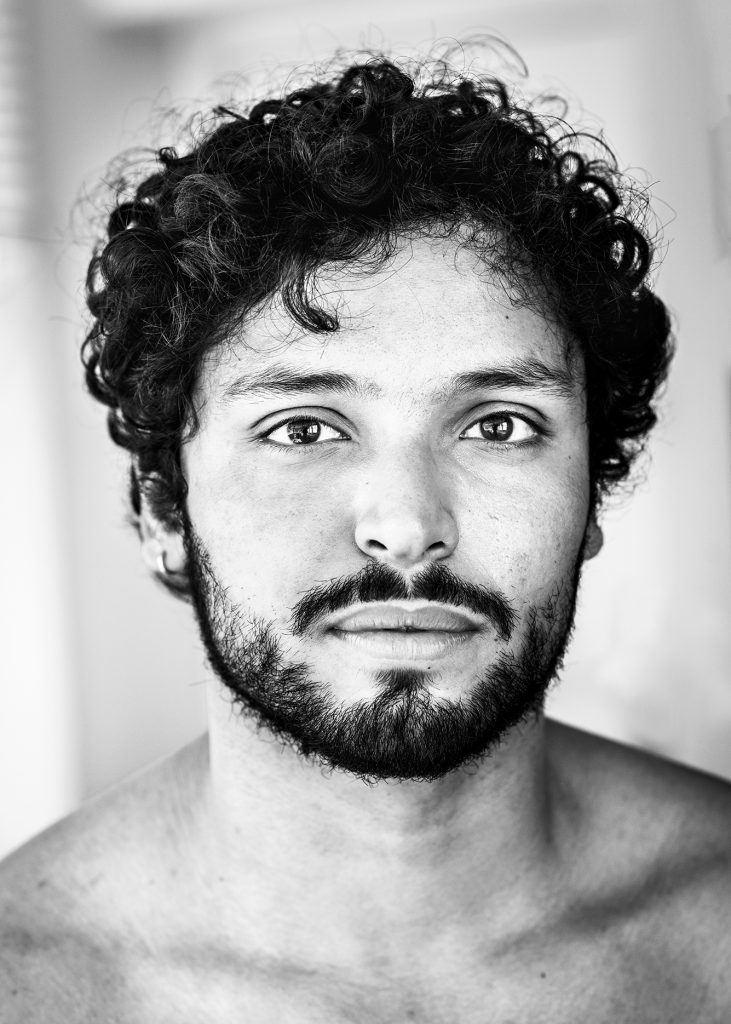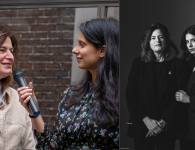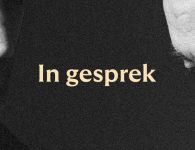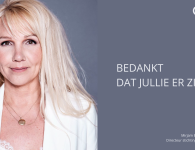OPEN about depression
In the Netherlands, about 1 million people suffer from depression every year; about 800,000 people take medication (anti-depressants) for it. According to predictions by the World Health Organization (WHO), depression is becoming the number one public health disease. Effective prevention and talking about it seems to be the key.
Research shows that one in five adolescents experience depression. With that, young people even experience depression more often than adults. Especially young people state that there is a great taboo to talk about it. To change this, Open mind, in collaboration with its partners and the young people themselves, wants to bring the subject of depression to the attention of the general public and make it easier to discuss.
OPEN about depression is a project of the Open mind foundation in which a large group of young experts by experience make mental vulnerability visible and more discussable.
OPEN about depression – the project
Mirjam Bekker-Stoop (Open mind) and Linelle Deunk (photographer) both saw how their daughters fought with their demons, but also how they where learning to deal with it. Each in their own way. They decided to supplement their own experiences and knowledge with that of others. Under the banner of Open mind, they traveled through the Netherlands to portray the most diverse group of young ‘experiencers’ and record their stories.
It became a special journey in which they met beautiful, sensitive, but above all surprisingly strong young people, from whom they learned a great deal.
The personal portraits and stories tell us how they experience their depression, how they deal with it and what their environment means in this.
Stimuli
Slowly it started getting worse in my little head and at 14, when I was on vacation by car with my parents and little brother, I reached my low point. Totally panicked because of all the stimuli I wanted to get out of the driving car. I couldn’t do it anymore.
When I was 7 I got diagnosed with TSC (tuberous sclerosis). Quite a rare illness which, among other things, I’m incredibly sensitive to ‘stimuli’. Sounds hit me awfully hard and everything that moves comes at me like crazy. I have a hard time protecting myself against that.
In puberty this kept getting worse. I almost got too scared to go outside, got sleeping problems, became fearful and incredibly insecure. Luckily, my parents already put me in treatment at the hospital in Utrecht, where a team of specialists oversaw me.
I was lucky that the psychiatrist and the neurologist had just discovered that the ‘’pee pil’’ could help with overstimulations for children with my illness. Yeah! They just needed to do good research first, before they could prescribe me the pill. And that took long.
After that vacation they gave me anti depressants for the meantime. That calmed me down a bit, but the stimuli were still really intense. Sounds of the neighbours drove me crazy and going outside was hell.
Luckily, I had good people around me to talk to, calm me down, and bring some space to my head. But it wasn’t really gone. When after a year I finally got the ‘’pee pill’’, my life slowly started feeling calmer.
Unfortunately it totally went wrong again a year ago. I got a boyfriend and turned from a girl into a woman. That step was too intense and too big. I didn’t know how it would all go with me in the future. A relationship, work, having children, it made me panic. On advice of the psychiatrist we started looking for a coach who could help me with that.
As long as I can remember I’ve wanted to become an artist. I’m in my third year of art school now and I’m doing a bit better. The school gives me some structure and the possibility to work towards an exhibition. That is my first big goal that I find stressful, but also makes me really happy.
In periods of vacation, or just periods where structure lacks, sometimes the ‘heavy’ feeling comes back. By now I know that a good balance in rest, repetition and movement help and that this feeling can leave again. In the future it will sometimes still be a struggle to stay balanced, but with good help I’m hopeful that I will succeed in it.
Lola
Taboo
Unfortunately it’s the case that in coloured communities certain taboos surround mental health, which makes it hard to talk about it openly. I come from a Muslim family and have noticed that it’s difficult to talk about this. ‘’You just need to pray’’, or ‘’this is a test from Allah’’, is usually the response.
In my home it was very busy with five kids and two parents who could never see eye to eye, which caused a lot of disagreements. I thus created my own little world where I felt safe. It mostly needed to be tidy and with my books and coloring pictures I could amuse myself for hours on end. If someone disrupted that I could completely explode. But no one was looking at the causes of this and the message I was trying to bring across with this.
In puberty these clashes led to an accumulation of discontent. I just wanted everyone to see me. That my family understood how I really felt and that it wouldn’t just be underplayed or put away. Comments like ‘’oh, you’re just going through puberty, what do you know? How can you really feel like that?’’ made it more and more difficult for me to be honest about my feelings and struggles.
I’m someone who feels out the situation. This coping mechanism I developed when I was really young. Most importantly not showing everything to the outside world and especially when it comes to your private life. When it was no longer doable, I made up my mind and started looking for help. That was the real turning point for me.
Looking back I think that the periods of depression were mostly due to putting all my sadness away. I think that is something that a lot of people struggle with. The feeling that you’re not allowed to feel anything and then completely ignoring it, can result in painful situations when you don’t get the adequate help you need so badly.
By sharing my story and contributing to more visibility, I hope that people will see that mental health needs more attention in our community. Within this there are a lot more people who struggle with it, because depression doesn’t know colour, class, gender or ethnicity. It cuts right through every layer of society.
That’s why it’s important to realize you’re not the only one, because there are always other people who have gotten through their struggles like you. I have also accepted that depression is something that likely will stay a part of my life due to certain vulnerabilities. However, now I have the right tools to know how to deal with it. That’s why I’m not scared of sadness anymore. The low points are like the high points: unavoidable parts of life, but in the end everything is subject to change. That thought gives me comfort and gives me hope for the future.
Ilham
Food
Children need space to be and develop themselves. I didn’t have that. Because of the difficult childhoods of both my parents, my father’s outbursts, my often sick mother, which were both consequences of their pasts and my brother with ADHD, as a child I ended up in an invisible and caretaking position.
Because of my perfectionism I got stuck at 16. My body was changing, I started going out and drinking and was visible to men. At the same time I needed to get perfect grades, keep the house tidy, calm my father down and take care of my mother. That all became too much for me.
I started looking for control in food, also because I believed I wasn’t good enough, not pretty enough. While that eating disorder grew, I also got really depressed. I really was convinced that life just wasn’t for me, that everything was too difficult and too hard and I didn’t deserve to live.
An eating disorder is really intense, it swallows you and your family in. Because my friends didn’t understand me and left me behind. Not because they wanted to, but more because they just didn’t get it. Their life kept going and mine was paused.
After a big fight at home I locked myself in the bathroom and thought: I’m going to end it. But when I looked in the mirror I saw the fear in my eyes and someone that I didn’t know. I still remember telling myself: Lian, this isn’t you, you’re so much more, you want so much more and there is so much more, you just don’t see it. Just try to see it.
That was the first time in months, maybe years, where I really cried. I couldn’t cry before, I was completely empty. Then the release came. I cried with my entire being and thought, now it’s done, I need to get out of this.
There my journey started on the way of healing from the depressive thoughts. It’s not like you wake up and suddenly think, oh, I feel better. It’s more a journey you experience and step by step you start to feel better. Step by step you get out of that negative world. Without an end goal. I felt myself getting better, more free.
My focus doesn’t lie on what others expect of me anymore, but on what I want. And thinking of the future like okay, how will my world look if I keep going like this for five or ten years? And visualising it. How do you see it? What do you want? At some point I realised it. That was really confronting, that I’m responsible for my happiness and my future.
You need love, recognition and safety from your surroundings, but in the end also from yourself. That’s what I teach others now in coaching.
Lianne
Therapy
I came out when I was 19. I don’t think that before I really presented as heterosexual, but being gay always felt like something I had to keep to myself and not put out into the public.
A year before I had moved from Twente farmland to Leiden. I wanted to become a frat guy, that seemed like a good idea. But I didn’t feel like I belonged and so I left again after three months. I felt like I had ruined it, my chance to adulthood and independence. I noticed that I very easily slipped into a sort of self-isolation. I stayed in bed for days on end and didn’t feel like facing the world.
After a brief career as a call center employee my life finally started again when I got into Fashion Design, which I dreamt of. I put everything into it, but it was very competitive and strict, because the world simply doesn’t need that many fashion designers. It was really tough and I developed something like social anxiety- I was scared of my fellow students and the teachers. All my energy went to pretending I was okay. I was giving an Oscar worthy performance of someone who was happy. Until it all fell apart.
At one point I noticed that every morning, on the way to the bus station, I thought: “I might as well throw myself off this bridge. Then I don’t have to do anything anymore.”
I called my parents and said, “mom, dad, I have to quit this school and I’m coming to Twente now. I really want you to come pick me up, because it all feels really bad right now.” At the station in Hengelo I got in my parents’ car. My sister was in the backseat to welcome me. I got a hug and finally felt like I could breathe a little.
After that low point I looked for professional help. The GP referenced me to a psychologist and I started therapy. It turned out to be the right choice, at the right time and with the right person. My quality of life actually went up quite fast.
That was the first time I even learnt how to talk about my emotions, to be open, also to my friends and my parents. That was really freeing. All of this was four years ago. From time to time I’ll stop therapy and start it again. The longer I live with problems around my mental health, the more I see it as something I need to pay mindful of rather than something I need to solve immediately. Since I got help, I know that I have control on my life again. And I really wish that for everyone.
Robin
Freedom
I grew up in a calm neighbourhood on the edge of the forest, in an active and venturous family. I enjoyed my childhood, babysat in my area, and could often be found outside playing football with my friends. In fact, everything went quite easily for me, in school, with friends, and for tennis and football. Until my first defeat: I wasn’t allowed to go from year 4 to 5 of HAVO. Something broke in me, it felt like I couldn’t suffice to the expectations I and others had for me. If I look back now, that hit wasn’t that big of a deal. But in that moment it caused everything to go downhill.
My parents and I came in contact with the psychological system which we were unfamiliar with. Until one day the police and ambulance were waiting outside our door. I didn’t do anything but was treated like a criminal. A 16 year old kid, I got transported with cuffs and landed, after being forced to give away my belongings, in the separation cell. I resisted the 5 nurses who held me against the ground and after a needle in my buttcheek, I woke up in a cold, closed room of 4 by 4 the coming morning. I didn’t know where I was, didn’t have anything and didn’t know if anyone knew where I was. It was a traumatic experience that lasted 6 days. When I was allowed to leave the cell, I apparently was diagnosed as bipolar. The doctors said my brain was damaged by this experience, and I would never return to my old level. Among other things I got the advice not to go get a degree anymore. That made me angry, I didn’t believe it and from that moment I would do everything to prove them wrong.
Around 5 months I lived in the hospital, in (partly) closed wards. It was horrible and it seemed unnecessary to us, but once in the psychiatric tracks, it’s difficult to get out. I knew this was my ultimate low-point, from here on it could only get better. I felt the love and support from those around me, got to know myself better and really focused on what was actually important to me.
The hospital first found it too risky, but after 5 months I was released from the hospital to go kitesurfing. I went to Strand Horst with my mom. The turning point, I can remember like it was yesterday, I sailed away and felt the freedom that had been taken from me all that time.
After a detour I still landed at the HBO, I went to study Sport, Management & Entrepreneurship in Amsterdam. During this degree, which was made for me, I established my boardsport brand Salt N Floks and started a beach tent with kite school in Wijk aan Zee with my kitesurf buddy. Soon I will graduate, will put all my passion into my companies and have proven to be right after all!
Bob
Physical
I think I first got depressed when I was 19. I mean, I had a difficult childhood, but due to being on the spectrum that mostly passed me by.
Depression is also in my family, so there’s a genetic factor. I recently lost my father to depression. He committed suicide and when I went to Israel to bury him, I saw that my other family members also struggle with depression. But it’s not only genetic.
I personally experience it as something physical, something I get sucked into mentally, because I live in a body. It might sound very weird for people who don’t know that, but because of my autism I experience a gap between me and my body. Depression is for me really a physical thing.
It can suddenly overcome you, so that was difficult the past few times, because I didn’t exactly know how and what. I felt sick, because I couldn’t function normally. Just getting up, doing something, that didn’t happen. I didn’t have problems with telling anyone, I wasn’t ashamed of it, I just didn’t know what was happening. I didn’t understand why I was depressed. I didn’t know why it happened again, back then. It was really strange, my whole reality changed. That’s how I experienced it.
Now, I can do something with it. Now I know it’s a sort of slippery slope, if you get into it it’s difficult to get out of it again. You yourself have to make sure that you don’t get in too deep. You need to pay attention to yourself, set priorities and take care of yourself. That has to be your number one goal, otherwise it’ll go wrong. So you have to be very selective about what you allow in your life. That’s something I learnt and am still learning.
The problem with depression is that it goes too deep into your emotions. Relativizing and rationalizing your way out and understanding that even if you feel like the world is ending, it isn’t true. What my friends did is listen to me, talk to me a lot, talk me through it, those are good things. But no one can give you a solution. There is no solution, you need to do that yourself.
In the end, it’s a mechanism. The body is a car and you’re the driver. You can’t just let go. You need to learn how to take the wheel and keep it in your hands.
Hadas
He
At the end of my first year in college I missed, at the hands of an administrative mistake, a few credits which resulted in a negative study advice and not being allowed to continue studying. That became a court case that I ended up winning.
While the case was running I wasn’t allowed to take classes in my second year, but did have to do all the exams. It was really rough. It felt unfair, the battle of me by myself against a whole institution. I felt hated and misunderstood.
During my exam week in my second year I got sick. The pressure had gotten too high, which made me unable to handle it physically, too. From that moment on I was constantly sick and missed another two months. It was all really stressful.
My GP explained to me that depression can also show itself physically and directed me to an organisation named Grip Op Je Dip. That is online and anonymous. There I followed a few ‘’classes’’. And I indulged myself more in religion.
In the end I got better in quite a short time. On average someone with depression is sick for five years. For me that took 1.5 years. That I found wonderfully short.
What helped me the most to heal from depression was the knowledge that I’m not alone, that I’m valuable, that I’m loved and all of that in the eyes of God. He gave me the peace I needed to grow.
I don’t need to worry any more about the value of my life, because I know it now. And not about the storms of life either, which can seem so wild and dangerous and make you think nothing will ever be okay again, because now I know it will be okay.
I don’t have to worry anymore, because I know God is with me and won’t let me drown, because He loves me. That got me through it all.
My parents were also there when I needed a listening ear and could tell when I lied about everything being okay, so I could understand better what was actually wrong. That helped me a lot in being able to handle things by being solution-oriented.
But it was mostly my brother who inspired me in my faith. A while ago I found a notebook from that time and in it, a prayer: Here God leads me, here God teaches me, God protects me, in Your light I bloom, in Your mercy I am protected, in Your wisdom I am humble, I live to love You, my life belongs to You.
And after that prayer I succeeded more in enjoying the little things. Being together with the people I love and being able to laugh together, because I couldn’t do that for a while.
La Keisha
Boundaries
When I was 13 I lived in the east of the country with my parents. They were busy with their enterprise. I was doing gymnasium and only wanted to get tens. Then is when I first experienced depression. I felt like an outsider and didn’t see the point in anything.
That feeling stuck around and, when I was 16, I stopped eating. Under my wide clothes I was suddenly thin to the bone. My parents were concerned, but the search for proper help was a disaster. My anorexia was too bad for regular assistance, but not bad enough for the hospital. My mom is a nutritionist, and kept me going with protein drinks.
Finally I was landed by a psychologist and expert. I had totally lost control, and was playing a psychological game with myself. Through our personal conversations and her advice I gained more control and had the tools to start liking myself more.
When I was 17 my parents got divorced and I started travelling. In the first place to flee, but very soon I developed a deep love for adventure, photography and the different cultures I came to learn about. I learnt to relativise and charged my personal battery again.
Due to the pressure I felt to ‘’make something of my life’’ I came back and started studying. Really quickly I was depressed again. My choice to study business economics turned out to be totally wrong. The pressure to perform well got too high. So I threw my books in a corner, packed my bag and left to travel again.
At a certain moment I found happiness in the Netherlands on the water. I could combine work with travelling on a boat where we would do group entertainment. It was really hard, maybe too hard work, but I felt at home on the water.
By the water is also where I met my love. I was now 22, and went into it completely. He was everything I could wish for, and I still collapsed. I had overstepped all my boundaries and it was too much. I started having anxiety attacks, psychosis and agoraphobia. I had worked too hard and lost control in love. My head was working overtime. I didn’t feel good enough
I went to the GP at the insistence of my boyfriend. Anxiety medication and antidepressants helped me to feel calmer in my mind. We’ve been through rough times, but my love turned out to be my tower of strength. Our love feels steady, we’re going to make an amazing, long trip, and with my photography I want to tell beautiful stories.
Meanwhile, I have learnt to accept my depression and not resist anymore. It’s allowed to be there, it has made me who I am: a passionate, young woman with a story. And I’m proud of that.
Estrella
Breathing
I experienced my first depressive episode when I was still in elementary school, because I was scared of my teacher. That presented itself in stomach aches and other physical problems and this made me afraid to go to school.
I was raised in a Christian family. The church and religion were very important. Besides, my brother has autism, so there was a lot of focus on him. The older he got, the more this increased. My older sister had already moved out, but I experienced the changes my brother went through and his bursts of anger. That’s why I fled home.
In middle school I had a friend who was quite destructive. I had always learnt to be caring and she knew how to play in on that. She told me everything, including details about her hurting herself. For two years she made me swear not to tell everyone, which made me feel high pressure and sadness.
She started deciding more and more how I should feel and how I should deal with that. We talked a lot and she told me that if I was really depressed, I would hurt myself. She had gotten such a big influence on me, that I started doing it by scratching myself. Until this was discovered.
First this was horrible, because no one understood me and everyone was angry at me. Especially that friend. She was going to end it and didn’t want to see me ever again. Then I got sent to a therapeutic centre and got the diagnosis of dysthymic disorder- that means you’re not as heavily depressed, but you get long periods of intense sadness.
After that I did 1.5 years of cognitive behavioural therapy where I learnt to not see things in black and white and take better care of myself. I liked talking to someone 1 to 2 times a week and the exercises I got helped me well. But when that stopped, I fell back into old patterns quickly. Thinking too much, catastrophic thinking and focusing on others too often.
Later I also started getting panic attacks, which would almost make me faint. That scared me and this made it worse. In my final year I noticed that this reached a peak, which almost led me to not finishing school. My school gave me a personal coach who helped me through this period. Moreover, I also had counseling with a psychiatrist who prescribed me antidepressants 3 months prior to my final exams, which also helped with my anxiety.
Now, I’m doing well. I’ve had my own place for a while. I’m decreasing my medicine. That was hard for a bit, but it’s a lot better already. It’s important to me that I’m less strict or critical to myself and practice yoga. That’s taught me to breathe better and treat myself kinder.
Joelle
Acceptance
Depression to me is that you can’t lead your life the way you want to. I felt that for the first time when I was eight. I didn’t want to go to school and when I got home in the afternoon, I would immediately put on my pyjamas and sit on the couch. I felt a kind of emptiness I didn’t know how to fill.
I come from a very loving family and lived in a small village. At school I got bullied quite a lot. My parents and I had conversations with my teacher about this and I took a social skills training, but that didn’t help. Then you go off to middle school and think of a new start, new place, new people, so you’re full of good hope. But quite soon I noticed that didn’t work.
That’s when I was first hospitalized. The first weeks felt like a holiday, but soon after I wanted to go home quite badly. From that moment on it was in and out of clinics, a lot of therapy, a lot of medications, of which I thought ‘’it all doesn’t work’’. Then I lived at home again, but it became worse within a few months and I started having suicidal thoughts.
When I was 15 I truly exploded and punched my dad a couple of times. That really scared me. That was the deep point. I kind of was a rebellious little punker and in all fairness, I had to stay that way. I was angry at everyone and everything. I disliked everything and especially myself.
At 17 I got an exemption from compulsory education and that gave me a lot of peace. I started making big leaps. I started doing a lot of volunteer work, like in the advisory board of the institution. I wasn’t an aid worker or something, but I tried making myself hard to speak out for the other clients as well as I could. I enjoy that and find it important.
I also made a lot of music and played bass in a band. Standing on stage with them gave me an enormous heap of self-confidence and that helped a lot. Just doing something with peers. That kind of thing makes a difference.
Depression is intangible for most people. They usually don’t know how to respond, which role to take on when dealing with someone who suffers from it. Acceptance is really important to me. I hope that in the future it will be as easy to say ‘’I have to go to therapy today’’ as ‘’I have to go to the doctor’’.
For the rest I don’t make plans. That used to be a big thing, that I didn’t know what I should do with my future and then felt frozen in the present. I went through a time where I would think ‘’first I have to get through today’’. Now I can look a little further. But a year, or five years? I just hope I will become really happy.
Jesse
Skin
Sometimes it’s going really well, sometimes it’s going very poorly, but it’s never as bad as it used to be.
Everyone feels bad sometimes, and then I ask myself: “is this normal, or is this depression again?”
When you return to a normal emotional state after a depressive episode, negative feelings are part of that. And that can be tough. With studying sometimes I don’t know if I don’t feel like it or just feel really rough. I don’t want to abuse that, but then I’m not sure if I just have to keep going, or need to take a break. I’m also scared that it will come back, because once you’re in it, it’s hard to get out.
When I was 21 I did an attempt at suicide. That was after a long period of depression and an eating disorder. In school I always had a lot of side jobs and at a certain moment I joined a modeling agency. There I was told I had to reduce my hip width by 3 centimeters and started working out a lot, but that didn’t work. I developed an eating disorder and got really depressed. I was hospitalized for 9 months, but the care wasn’t good at all. I developed intrusive thoughts that I should stab myself, but I was always too scared and that’s how I started hurting myself.
At a certain point I had burnt my arm so hadly that I needed a skin transplantation. Because burns have a high risk of infection, I was put in isolation in a kind of vacuum room. There I got good counseling. My therapist from a new clinic where I had come in the meantime just came to the hospital.
I was already studying photography in Groningen and still did treatment. Now it happens a lot less, but sometimes there’s so much tension, it has to happen again. Then I think that I was too annoying, too present, laughed too hard, that sort of thing. It often has to do with coming in contact with other people, that the pressure gets too much. And then it explodes.
I don’t hurt other people with it, you can say. I do it myself. I know it’s not nice, not useful, but if I need to do it every once in a while, I’m already happy that I can function in the way I do, so it is what it is.
I’m actually quite happy with how it’s going.
I since recently have a boyfriend and this works really well. That physical contact where you feel kind of comforted. I have it good, I think, with my studio, my house, my pets, my boyfriend, with what I’ve built up.
Laura
Fear
After my bachelor’s I did half a year of volunteer work in Portugal. Picking olives and surfing. Amazing weather, great people. Back in the Netherlands is where it went wrong. My relationship ended, my parents got divorced and I was living with a girl who struggled with psychosis. She would break into my room and move all the furniture. I felt unsafe. Everything was kind of twisted.
And then I got fired from my job at the pizzeria, which made me feel like I really failed. I thought: if I can’t even work at a pizzeria, I probably can’t do anything. For me that was the proof of, see, I can’t do it, I can’t handle this life.
My concentration was fully gone. It was so bad that I couldn’t even read letters. I couldn’t read books and, at some point, I was so stuck in my head that I could barely move my body when I woke up in the morning. That was the moment I called my mom.
My mom is a therapist. She gave me all sorts of books and exercises, like this way it will all just pass. But I just felt pressure and thought: ‘oh, even more work’.
I signed up for the GGZ and found a horse therapist by myself. That ended up helping really well. That just gave me the tools to feel more like myself and be more grounded. To feel the earth under my feet, to know I’m being carried.
It took a while before I started talking about it to my friends. The depression literally felt like a big dark cloud hanging around me. I was scared that, if I came too close to my friends, they would be swallowed by this dark cloud. So I stayed away from everyone. That made me feel really lonely.
Sometimes I still see a black border, but not that whole cloud. When I feel depressed now, I feel like it’s a kind of movie- so when that film starts, I know that it will also end. Then life will move on. So now, I don’t get scared senseless like I used to in the beginning. First I would get lost in that film. That would become my new reality.
First I always thought: I’m not allowed to be scared. Again now, I’m gonna start with a new master’s. I find that quite nerve wracking. Then I don’t allow myself to be scared, because I should just be able to do it, without fear. But now I tell myself that I’m allowed to feel that fear. The fear will just go with me. That makes it a lot easier.
It gives you so much room and air if it’s allowed to be there, if you don’t have to pretend you’re okay.
Caro
Dancing
My Cape Verdean parents became Jehova’s Witnesses when I was 3 years old. My parents were really strict. I was really good in school and my parents imagined a glorious career as a doctor for me. And I, I only wanted to dance.
When I was 15 I hit puberty and started resisting the strict upbringing my parents gave me. No conversation was possible with them any more. And if things didn’t go their way, I got a beating. At home we started clashing more and more.
At the same time my parents went into a long during divorce. The time that I got a false accusation for theft, for which my mom punished me hard, was the last straw. That was the day I fought back. No one won that day.
In dancing I could let out all my frustration, could speak my truth, tell my story. That’s what I wanted to make a career in. But that was unacceptable for my parents. I got kicked out. My 6 year older brother, who also started dancing, gave me shelter then. But after a while it went wrong between me and my brother as well. We both had our frustrations and those clashed.
I was 18 and left on the street. My family I had lost, but in desperation I found focus. I wanted to become the best dancer in the world. With that I put a lot of pressure on myself, but I succeeded: I came 4th for Holland’s Got Talent and got a contract with Sony. I only hadn’t learned to deal with money or to build a secure base for myself.
For a long time I hadn’t been feeling okay. I was quite a successful dancer, but at the same time I was homeless and always got sent away. My family didn’t like what I was doing, my relationships fell through and I didn’t have anywhere to go anymore. And then it went wrong. I was in a club when I got a psychosis. Everyone was cut loose on pills, but I got stuck in an awfully dark experience.
Slowly I came out of that and very slowly my fear to get stuck in that again faded. I created an environment with like-minded people. We all have our weak points, but we listen to each other without judgement. We feel safe and strong with each other.
As an artist of movement I’m not only healing myself, but also others. With our group we give classes, workshops with which you can come closer to yourself through movement. The goal of Amenti MoveMeant is to move others to more self-awareness and inspire them to dare to shine. Dancing heals.
Gil
Panic
The low points nearly always come really quickly. Most of the time it starts with something physical. For example, having drank too many cups of coffee or having a cold. Then I suddenly feel caught in a body that doesn’t work well, and I want to get out. That’s what it starts with, most of the time.
Usually, I can overcome that. But in the moment that something mental joins too… for example that I had a hard conversation with someone that day, it can be something really small. When the physical and mental combine and come together that can lead to a panic attack within five minutes, in which I kind of relativize the meaning of life into non-existence in one go.
So then those two things suddenly stand for something that is always there. Then I think: oh, now I have a stomach ache and that means that my body can stop functioning. It will stop functioning, because I’ll only get older, so then I can only get more and more pain. It’s all going to be awful. I can’t deal with this and see, now I’m also panicking. Because I can’t handle anything, I can’t deal with anything mentally because, what really is the big deal? Why am I so panicked? And by thinking about the panic, over and over and over, you can’t get out of it and due to this, I very quickly come into a physical state of panic.
I sweat and shake, I faint, or I start breathing really fast. Everything reinforces the other things in such a way that I can’t come out of it, that I think it will never pass, because it’s always been this way so it will always be this way. I can’t live with this, I can’t keep it up, I want to die. And so I can go from completely happy to wanting to die in five minutes.
The only way out I see then is death or medication, really strong medication.
I’ve been depressed since I was really young. I had a good youth, but since I can remember I have been depressed at times, and as a child that showed itself into periods of real and unappointed fear, fear I couldn’t name or explain. Especially when I was alone, or in bed, or sitting on the toilet. I think I was around 15 or 16, when I could finally give the feelings a name.
When I was 18, I received my first diagnosis. I felt as if nothing changed. For as long as I know, and I am now 33 years old, the depression has been there. Further I have always functioned quite well. So in one go I finished school, got two degrees, two masters and built a career.
The diagnosis meant that I could start medication, which made my depression manageable. I will never get rid of it, but that does give me some comfort. There are side-effects, but it’s almost like I cherish them, because for me those are signs that I’m doing well.
Aafke
Motivation
Sometimes I have problems with motivation… okay, not sometimes. A lot. I just never want to admit it. For a long time it wasn’t clear if I could go studying or not, and that I’m doing it anyway now is quite special. It’s hard to admit when I don’t have motivation. I know I can do it, but I’m afraid that I’ll make it hard for myself. Then I’ll say it will succeed, but time and time again I clash with myself. My head wants to, but it won’t happen. I get really tired, get in my head and get stuck in a pit. I just lay down in bed to hide myself in tv-shows and in that moment I think ‘oh, it’s actually going okay’, but in the meantime it’s actually going poorly. My frame of reference gets totally confused.
Only recently I’ve started taking my depression seriously. In the past I just put it away as part of other problems. That way I could pretend like it wasn’t there. But it’s not something you get for free like a 2+1 sale, it’s a problem that you need to take seriously.
My depression has never been the point of focus of my treatment. There was always something else that got more attention. I was ashamed of it and didn’t take it seriously, so why would I address it? ‘Fortunately’, I’m really good at pretending all is well and try to cling to my optimism, at least to the outside.
When I got hospitalized for a longer period, I told myself that I was doing fine again, but only repressed my depression even more. Because when I was back home again I laid in bed 23 hours a day and felt everything come back thrice as hard.
For my parents this was really difficult. I only later got told by my mother that for a long time she was scared I would hurt myself. I found this quite heavy, because during that time I just thought if I didn’t show anyone how I’m really doing, they’ll think it’s all okay. When I was doing really bad it was difficult to have a proper conversation with me, so for others it was very hard to get a sense of how I was feeling.
Now I’m more open to signals, but still very busy with figuring out when it goes wrong. This is hard, especially because I don’t do therapy anymore. I do think I’m on the right path. I’ve become more open, so I tend to discuss things with friends and family more often. I have a really good friend who I talk to a lot. About her and about me. When others say to me ‘’it’ll be okay’’, I can’t do much with it. But when she says that to me, then I know she believes in me. This gives me some more hope, which I can definitely use.
Nienke
Fellow sufferers
When I was 13 my parents got divorced, mostly due to my father’s drinking problem. With my two sisters I lived with my mom for half a week and with my dad the other half. Before they split I didn’t notice it well, but after the divorce I discovered just how bad his drinking was and he got a lot worse as well.
From 13 to 23 I tried to help my father with his problem, but at the same time suffered a lot because of this. I was going through puberty and just got in a new class and absolutely wasn’t going to talk about it, of course- I was embarrassed. At home we didn’t talk about it either and that caused me to slowly shut down. That was really lonely. I felt worthless, powerless, alone, and like I was failing.
At a given moment I told my mother ‘’I don’t need to do this, I give up.’’ That’s when we visited a child psychiatrist. First it got a bit better, but after a while it went down again.
In the beginning I was just sad, but the worse the depression got, the less I felt- just some kind of shallow, dry and neutral feeling. It was clear to me that something needed to change. To my psychologist I said that I wanted a diagnostic examination and treatment that fit me. A day treatment didn’t work for me and then I had a voluntary examination. That was my last straw. I thought if this doesn’t succeed, it’s over.
There I learnt how to share again, express my emotions and that really helped me. I was in group therapy with fellow sufferers and thought wow, I’m not the only one in the world who feels like this and that made me feel better.
It became clearer and clearer to me that for me the issue was that I kept everything to myself, and couldn’t share. The moment that I did do that, a door really opened for me. My physical symptoms got less and it was like I could finally breathe.
That intake ended up lasting nine months and after, I felt reborn. Now when I get up in the mornings I don’t feel the struggle I used to. It’s a holy miracle that I feel excited for the day. I’m still really happy with that.
Last year my father died from his alcohol addiction. I joined a mourning group for students because I knew that I needed to share and talk about this. What helped me last year was like-minded people, so I looked for them again. I also talk way more about it with my sisters and my mother now. My sisters really are my fellows in this. And so death can bring you a goodbye, but also a connection.
Maud
Hope
A lot went on in our family. I had a complex situation at home. I am the fourth child in a family of six and the only one who went to regular education. That always made me feel like an outsider. When I read my diaries from when I was 10, I could read that then I already wanted to die.
I got bullied at school and at home it was also difficult. I felt sad the whole day, but only on the inside, because I never showed this to anyone. I just couldn’t imagine it ever changing and started keeping to myself a lot. Everything was dark in my head.
The worst thing was that I wasn’t considered a child. But there were other things at play, like abuse. Finally this led to a report being made, and when I was 14 child protection took me out of my home.
In the following years I lived in multiple foster homes and institutions. Despite the good moments that I had, I gained new traumatic experiences in several living situations. In my current treatment I try to give those things a place. I have always found a lot of support in God and my religion. Around 24 I found a place where I felt more and more at home. Different families I have lived with in the past years are always there for me and ask me how I feel. Here I can say anything without being ashamed. That stability gives me a lot of peace.
People tend to try to take you out of the deep and make you feel better, but I have a much stronger need for someone who takes the effort to get into the pit and deal with it together. That is uncomfortable for those people, because then you see a lot of pain and sadness, but I believe that the way to get through that is much more healing than to ignore it. My experience is that you’ll end up getting much further.
When I was depressed I would think ‘’this is forever, this will never pass’’. But in therapy someone explained to me that emotions are like waves on a sea, they come and they go. You can never cry a whole day. It always stops at some point. And this is the case with everything. When I feel really down, it’ll get better soon.
When everything feels really dark now, I can see that it will be light again. In the past, I didn’t see this. Now I try to stay hopeful, see perspective, and judge myself less. Even when I see my peers have a good job, a house or a family then I still feel like I’m failing sometimes. But not everyone goes through the same things, so I try my best to just deal with what’s on my own plate.
Hannah
Sharing
I struggle a lot with sharing things with others, let alone when from one day to another you go from being a successful woman to being sick at home. But I really was physically sick. And then I ended up sending a bunch of my friends a letter where I said I wasn’t doing well. I was close to suicide.
When I was born my mother already had motor neurone disease. So as a child I always knew my mother would die. The expectation was that she would when I was around 6. It ended up happening when I was 18. In that period I didn’t mourn but this ended up, I think, triggering my depression. Deep inside I was miserable and I compensated that with a good job, a nice car, and business trips. But I was totally disconnected from myself.
What it was that made me so unhappy I couldn’t tell you. Suddenly there’s no feeling in the experiences you get. I saw the sun shine, but didn’t feel the warmth. I saw the leaves on the tree move but didn’t feel the wind. I saw the birds fly and didn’t hear them whistle.
I’ve been in therapy for two years now and stopped medication at the end of 2019. That was a really nerve wracking moment. The fear that it will come back is still there, because I’m genetically burdened by it. I’m simply more prone to it than others. Moments where I could be nervous about it could be if I get pregnant myself and that my mother can’t be there with me. But at the same time I have confidence, because now I know the signs and I didn’t before.
I’ve learnt that I need to make clear how I feel. I had just started dating my boyfriend when I was experiencing that suicidal period, so that was a very special dating circumstance. He signals things as well and says things like ‘hm, I feel like you’re tired’, or ‘I feel like you need some time for yourself,’ instead of ‘hey, Leonie, go read a book or something,’ because that makes me feel unwanted and feeds my negative self image.
For me it’s a lot of work to show who I really am inside, to be able to tell myself what I’m proud of, and what I appreciate about myself. But I really like to think, wow, I’m actually quite a great person. I just have to tell myself that 100 times a day.
Leonie
Gender
The move my family made from the U.S. to Aruba was really difficult for me. I didn’t quite understand the language, was a quiet kid and couldn’t find belonging anywhere. Moreover, I got a little sister which caused my parents to have little time for me. I felt jealous, invisible and lonely. When I was 8, I attempted suicide for the first time.
When I was 16, thanks to a friend, I realized that there was a completely different world out there. The notion of LGBTQ was completely new for me. A new world where everyone could be who they want and love who they want. Finally I understood my own feelings that I much rather wanted to be a boy who could love with other boys!
One day I finally gathered the courage to tell my mom that I might be transgender. My mom’s reaction was faint and she didn’t want to be confronted with it. In Aruba there is no place for a masculine woman. Around 4 years ago I left for the Netherlands. There I couldn’t just study, but also finally be myself: gender neutral.
The first year in the Netherlands was amazing. I was busy with my new independent life and my education. Until the summer came, it was warm but nothing like Aruba. I missed the beautiful beaches, my friend group and everything familiar. That triggered my depression again.
The fear of depression is still there from time to time. Because I’m still not always sure why I am depressed, until I come out of it. There is always the fear that I can’t do anything against it and that maybe, I’m just chronically depressed. And I don’t want that.
Take it easy. Be your own inner critic. When I’m vulnerable, it’s important that I take enough rest and have people around me who are good to me. If you think someone is depressed, stay close, do your daily things together, provide distraction. It’s about the person, not the depression.
I’m doing okay with my sexuality now. It’s a special journey that I dare to make in the Netherlands. Here I have more distance from my parents that allows me to have better conversations with them. And that’s good, because those, and the recognition for my feelings and my identity, are really important for my development to become a happier person.
I feel like I’m climbing from the hole of depression. My parents respect and accept me enough now to call me Alex. I have mommy issues. She knows this, but doesn’t take responsibility. I’ve proposed to go to therapy together, but we’re not quite there yet.
Alex
Medication
When I landed in my fourth deep depression two years ago and told my mom I wanted to be euthanized, she asked me to promise that first I would try anything else. So, also medication.
I had the luck that my mom is a doctor and is friends with a psychiatrist who could immediately find out what antidepressants would be best for me to take. On her advice I started that then. Because of the medication, it’s easier for me to start the day. I do my things, go eat, see friends. This all also helps me to feel less depressed. It really makes it easier for that dark, negative edge I see around everything to disappear, to make me feel less heaviness. It’s not like I never feel unhappy anymore, but it’s nothing like the pure, thick, dark heaviness that I used to feel inside.
In my final year of high school I first got depressed, two years after the death of my father. After a voluntary hospitalisation, he had already tried to commit suicide. After that he landed in the closed ward. That was really intense. After a while he was allowed to go home for a weekend. The thought behind this was to remind him what he was living for. Your family. And yeah, that was really nice. We even went ice skating. We’re from Friesland (NL) and there was ice everywhere the entire winter. I really had a very carefree childhood. But at the end of his leave he was suddenly gone, he was missing. The whole week I was hopeful, until my mom and sister came to wake me to tell me my dad had passed. That was a massive shock. I very badly wanted to talk about it, but my brother and twin sister didn’t. They just deal with the loss of my father very differently.
When I landed in a depressive episode myself I felt numbed and just a bystander of life rather than a partaker. In a dark cloud I just floated away. Everything was so heavy that I really asked myself: how am I going to handle this life? Can’t I please just go with my dad?
That heaviness I don’t feel anymore, but it’s still really important to me to talk about it. That also helps me realise that I’m not weird or crazy. To me, other people can be a mirror. I would like to figure out how to live life together. And you don’t have to do that by yourself.
You don’t have to be ashamed of your dark thoughts. Suffering is just human. You need to stop fighting it. Don’t always say no. No matter how dark life can be sometimes, it doesn’t only have to be negative, it can also bring you a lot of good.
Sacha
Listening
When you’re really down in the dumps, sometimes it happens that there’s another hole under that and you’re not at the bottom just yet. Or it’s possible that, unnoticed, you’ve gone up a bit. Or you just dug yourself a deeper hole.
The smarter I become, the smarter my depression gets. When I’ve found a way to get around it, it suddenly appears again. Because it’s a part of you, you’ve made it yourself. The same counts for happiness, you make that yourself.
Why me? That’s a question I’ve asked myself a lot and my answer is that: I’m happy it’s me, because I can take it. Someone else might have given up because of the pressure. I’m happy it’s me, because I can still laugh and be happy, after everything.
I am really, really small. I was 1.44m when I was 14. And with red hair, you become an easy target. You get cursed out for something you literally can’t do anything about. I remember when I was 8, I was lying in bed writing about wanting to die, because I just didn’t feel like doing any of it anymore. At home, things were hard…
When I was around 10, our house burnt down. When I was 11, I got put into foster care. I didn’t match well with my foster family and got placed in a long stay group, which is a group of 12 kids with counseling. After, at 18, I landed in assisted living, but that didn’t go so well and after a while they chose to put me on the street. After a year of wandering around I ended up at the Salvation Army, and now I have my own studio.
I am a visual thinker, and in my head I sometimes see a big, black square and, with all my power, keep telling myself: that square is interesting, even though I might not see anything in it. I end up getting so tired that I have no energy to be depressed anymore. Then I’m just done, with everything that’s so hard or so difficult to do.
Listening, that’s the best you can do when someone’s depressed. Listening to what someone needs. Because I’ve been in that pit where everyone came at me with answers and solutions, and they all already thought they knew what I would want. But no one would listen to me! So I pushed everyone and everything away.
If only I had had someone with a real empty head earlier on, so they could have come to me with no ideas and a clear mind. Just to look together, look at what was possible.
That’s what got me off the street. A mom who had just lost her child could give me the love I needed then. She started searching with me and helped me off the ground.
Jordy
Crisis
I never thought that something like this would happen to me. In December, 2013, from one day to the other, my dad disappeared. He worked for the government in South-Sudan and I worked for a development organization in the Netherlands. That day was the start of the civil war in South-Sudan.
For a long time we hoped he would stick his head out somewhere again. But when that didn’t happen I went to Juba in the summer of 2014 to find out more about his disappearance. There I found so much confusion, and uncertainty, that I landed in a crisis. I felt lonely.
It was kind of like a movie. I was there, but I lived as if I was on autopilot. At a certain moment it went wrong, and the panic attacks started. The first one I got while in the car. I couldn’t go on. Fortunately in my most anxious moments I could stay relatively calm and get home safely.
In 2015 I took the decision to go back to Europe, to Brussels. There I started seeing a psychologist. First with a White psychologist, who had no knowledge of the African culture. That was really difficult, because I kept having to explain how some things work in East-African culture. After four sessions I searched and found someone who did have this knowledge. That helped a lot. He got my story and my sadness.
Now I feel closer to myself. When I get nervous now or have a panic attack, I know where that feeling comes from and how to deal with it. Besides the sessions with the psychologist it was really important for me to have a safe place. My mother, brothers and sisters live in Londen, but I also have a sort of family in Harderwijk, where I can always go, I’m always welcome and don’t have to do anything. This gives a lot of peace, because I always know where I can go.
Luckily I have really good people in my life. You don’t have to be friends with everyone. You need to make conscious choices about that. Your friends need to be good for you, accept you, support you and give you the space to be who you are.
I’m doing well now. Sometimes there’s still a lot of pain and I feel down. But such is life. This is not the end of my story. I keep going, with the help of my psych, my family and my morning mantra: ‘’Life is always where it needs to be and you just have to hang on until it gets to the place where you want it to be.’’ I’ve always been a daddy’s girl and now that he’s not around anymore, I try to see as much of him in myself as I can.
Nicky
Help
Initially, I found it really strange that someone like me, who comes from a good family, went to a nice school, and has friends would have to go to therapy. I found it especially scary to go to the GP and say I wasn’t doing well mentally. But when I started getting panic attacks almost daily, I really wanted help.
My depression developed in a long period from when I was 16 until I was 18. I was always a big perfectionist and very strict for myself. But after my finals I, by God, didn’t know what to do. My grandpa had just passed away, I was sad and chose for a gap year. A long period started where I felt unhappy. I thought I wasn’t worth anything. Everything I did in life I didn’t find good enough. I was never smart enough, pretty enough, not likeable enough to have a relationship and I also didn’t get why people wanted to be my friend.
My sister, who’s my best friend, moved out when I was around 16 and in that time my mom wasn’t at her best, which resulted in a lot of fighting between my parents. I remember thinking “it sucks that you guys are showing all these ugly emotions”. I saw it as a huge weakness. I thought that people just had to be strong at all times, so I kept everything to myself.
I got panick attacks. I was so emotional that if I needed to go somewhere, I panicked. I cird a lot, or would lie on the floor to stare at the ceiling. It felt like there was an actual hole in my heart. I felt like I had no goal, like you’re in a train and you only see pictures of moments flash by, quicker and quicker the thoughts come, one after the other, without being able to focus on any of it. For those surrounding me it was really hard to reach me during an attack like that. I would start breathing really fast, walk in circles and was unreachable.
When people needed to come to our house more often to comfort me, I really wanted professional support.
I wrote a lot in my diary, poems as well, that helped a bit. And I was very honest towards my friends and family. But besides this, speaking to a therapist helped a lot, because talking about yourself is one thing, but your friends or parents or sister don’t know how to deal with certain thought patterns. That’s why I think professional help is also really important.
I didn’t always like it, but at the same time my therapist could quickly see through me. I started getting out of it quicker than I thought. I think that getting help and dealing with the problem is the best gift you can give yourself.
Rosanne
Dysthymia
From when I was 12 I constantly felt really downcast. I would wake up and my first thought would be: ‘Jesus, another day’. What I really noticed is that it wouldn’t go away. I kept waking up like that and kept feeling bad. I remember really well, that I felt as if other people knew something I didn’t that made them able to feel happy. I felt like I was missing something, that there was some sort of secret I didn’t know. And that actually lasted until I was 19, until my parents got divorced- a real nasty divorce- and then it turned into a full on depression.
A psychiatrist, of course, can’t diagnose in hindsight. But they assume that until I was 19, I was dysthymic- then you’re never really happy, but you’re constantly nearing depression. It was really nice to hear, weird as that may sound, because then I thought ‘oh, so I’m not actually crazy’. That I woke up like that every day was caused by something.
I was always a perfectionist and that stemmed from a lack of self confidence. So I needed the tools to show myself and others what I was worth. And so I started doing a lot. The gym five days a week, four side jobs and a full time degree.
And then my parents divorced and I also felt responsible for the care of my brothers. That was too much for my busy schedule. One night I was driving home and from one moment to the next, it was quiet in my head. And it was never really quiet.
All at once, from nowhere, came the thought that I needed to die, and that stayed and became louder and louder. I tried to calm down, but the feeling didn’t go away. That lasted for 24 hours at least. After that I regularly had suicidal thoughts.
After two years of talking with a therapist I noticed that it didn’t get much better. The next therapist appointed me to a psychiatrist, because he found that I needed medication. From the moment that I had medication it was like I finally had a grip again.
I’m 28 now and still have periods where it really goes back and forth, but I can prioritise, make sure I have a good rhythm, and that I don’t get too tired. Because when I get too tired, I can’t rationalise and then I slip and fall.
My friends know about it, how I work, and don’t belittle it. They know that if I cancel something, I don’t do it for no reason. That’s really important to me.
Joshua
Different
In the first year of middle school everyone had to take a personality test. I was 12. Later that week my mentor told me that the results showed that I had depressive symptoms. I had no idea what this meant. I did have the idea that I was less careless than my classmates, I was more scared to make mistakes and got stressed more easily. My home was not the place to talk about feelings. My father is a really down-to-earth man, while my mom is really emotional and temperamental, so oftentimes everything was about her in my family.
At school I got help from a counselor. This helped, sort of. But I was young, so I couldn’t really talk about it to my friends. That often made me feel lonely. The years after that I tried to find help by myself, but it didn’t really end up working. I got a base-level psychologist that I saw one hour every two weeks. That was nice, but all the rest I had to figure it out by myself.
After all, it kept getting better. When you get older you get different friendships, get better at talking about it and dealing with it.
Last year everything seemed to be going nicely. I was busy finishing my degree and moving in with my boyfriend. Then I got the news that I had ovarian cancer. And it had already spread. That was really heavy. I had a strong wish for children and then you get told that that won’t happen and I didn’t know if I could survive this. I didn’t understand it at all, and I still don’t really. This is something you don’t think about when your life is going the right way.
The spread was so far that my uterus and my spleen and everything in between has been removed. I’m thankful that I’m still alive, but doctors aren’t sure what this will mean for me in the long term. That includes whether it might come back. That is really frustrating. How do you deal with that? I’m 26 and all of a sudden in post-menopause and infertile. I have always had long hair and because of the chemo I lost it.
I immediately thought: am I going to make it harder for myself, or make it easier and ask for help? That means that I have to be really honest, also to those who give me help. I have amazing friends who are there for me and have become closer to me thanks to the honesty and vulnerability from both sides. Indicating that I was really scared that the situation would be too hard for them, actually made it easier and brought us closer together. Funny, right?
Now I’m in the emotional aftermath of the treatment and this sometimes makes me feel depressed. Then I give myself rest. Others then also have to give me time and space. My boyfriend didn’t understand this at first and found it difficult. I explained it to him like this: you’re standing in front of a pool which has a treasure chest standing on the bottom, which you have to get before you can go on with your life. So, I have to swim all the way to the bottom in order to get it. My boyfriend then thinks, oh no, she’s in the water, I need to get her on the side as quickly as possible. But, he actually needs to let me down to the bottom, let me get the beautiful treasure chest before I can move on.
Esmeralda
Open
After graduating I found a job with a drafting agency in the field of finance, focused on helping young people who are at the start of their career. That sounded great. And my experience there was, for the first few days, really positive, but those ended up being my last days as well. I had been very open about having depression when I was younger and that now, I was in the end phase. Unfortunately that company wasn’t accepting of that. The third day I arrived at work and was met with a letter announcing my leaving. That hit me hard.
I fought the firing- discrimination on medical grounds is not allowed, of course- that resulted me in a good win, justice. The company had to pay an amount to a charity that concerns mental health.
Still it took me a while before I went to find a new job. But finally I was even more open about it, at my current job I even told them about depression in my interview.
I’m doing well now. I recently moved in with my boyfriend and the job I found suits me. That gives a lot of stability. The structure gives me support.
It’s important to be open about your depression. At the start I found it really difficult to talk about it and find professional help. You don’t go to therapy if you’re normal, that’s what I thought at the time.
But I had to call in sick more and more at school and later also at my internship, because I was doing really poorly. I would burst into tears about the smallest thing. When I first visited a therapist I found it very hard to admit. Especially when the medication came into the conversation, that again felt like admitting something was wrong with me.
That’s why it was important to me to be able to talk about it. If people know what’s going on, they can understand your situation.
I was prone to thinking very negatively about myself, but when I talked about this, I usually saw that these thoughts were incorrect. Social interaction, therefore, is really important. When you’re not feeling well, you tend to avoid such things, but it helps when you keep doing them.
Try to think about the past times that you did go. The last few times that you saw your friends. How often have you regretted that? How often was it tedious? But also, how many times was it actually fun? And how many times did it make you feel better? Try to check that out for yourself.
Remco
Talking
From when I was 11 I started feeling lonely. That became so strong that I started cutting. The physical pain allowed for my thoughts to become calmer.
Shortly after my birth, my dad left. Quite briefly after, it came out that my mother was pregnant with my brother, which made my dad come back for a very short time before disappearing again. My mother always felt like something was off, something was going on with my dad. Later it turned out he was schizophrenic. He has always lived on the streets and turned down medical help, because he didn’t feel like he was sick.
Sometimes he would randomly visit. But my mother didn’t want him to be alone with me and my brother. She didn’t trust him. When the police came, he told me he would be back tomorrow and if we weren’t there, we didn’t love him. My mom brought us to my grandmother the next day. My dad then disappeared for five years, without a trace. I felt really guilty about that and became depressed. I wish I could have let him know I love him.
This experience with my dad has developed itself into a pattern where I let other people have so much space to feel loved, that I disregard myself. I notice that I still struggle with this every now and then.
My puberty hit quite fast. I was angry, difficult, and wanted to do everything my own way. Realistically, it was all a cry for attention. My mom noticed this quite quickly and made me go to a psychologist. She turned out to be insufficient. I knew how to lead her on to make her think I was doing alright.
Around 14 I found comfort eating. I have always been a dancer and got through to the preparatory course for the conservatorium. There they thought I was too fat. During that time I also got my first boyfriend. Afterwards he turned out to be authoritative and aggressive. All of this developed anorexia and later on boulimia. My eating disorder became my only friend.
Then I found a girlfriend with whom my healing process started, but I only really got there when I was 21. My girlfriend gave me the choice: either your eating disorder, or me. That helped me, I’m really grateful for it.
A lot of talking helps. The searching and finding like-minded people was a good start. My girlfriend struggled with anxiety and needed me as much as I needed her. Later on I also got to know others whose problems I recognised. We understand each other, can listen to each other without judgement and know when to stimulate and move each other to good things.
Elia
Self confidence
When I was younger I didn’t talk about my sadness or problems. I wanted to solve it myself. But I also always had an excuse. Things weren’t good at school, or my driving lessons weren’t going well. I kept trying to hide it away. My mother did try to talk to me, but when it came to feelings, I would shut down. From when I was 16 I put the contact with people I actually loved a lot on a low pitch and slowly got more isolated.
The step to get therapy was really difficult, because yeah, if you never ask for help and suddenly do so for your own wellbeing, that just feels unnatural. So I fret this for a year, for sure. Like, do I have to go to the GP now or will it just pass on its own?
My parents are really hard workers. When I was five my whole family moved from Kabul, Afghanistan to Ammerzoden in the Netherlands. My parents left everything behind and gave everything to create a safe and good future for us here. I’m really proud of that. I had a really goo childhood. I did gymnastics and later I started dancing, which is still one of my biggest passions.
But when I was younger I would already get really sad from time to time. Then I wouldn’t want to eat and I’d sleep poorly. And if I had an off day, then I would be really scared to disappoint anyone. This caused me to not show any boundaries. As I got older I landed in a really deep depression. Finally I went to my GP and got referenced further. Therapy has made me more conscious of myself, and of my thoughts.
I just always kind of lived on autopilot and the moment I started therapy, she explained very clearly to me how important to keep your thoughts in control and be able to catch yourself on the moment you’re not caring well for yourself; when you have negative thoughts, won’t leave the house, or just want to sleep. I got more aware of that.
I always thought it would just disappear, but you do need to do something for that. It’s not like it’ll just stop from one moment to another. It’s a process you need to step into.
Slowly but surely I have learned to break through negative things. To do things that you know are good for you: eating healthily, working out often- I do it every day now- sustaining your social contacts, going to sleep on time. And talk, that helps too. Only being able to say “I really don’t feel well today,” is already enough for me. In one way or another it’s out of my system then, because I could talk about it. I have more self confidence now. I now know for a big part who I am and what I want.
Sadaf
Support
When I was 15 I left home and landed in child support. Through my aunt and uncle I came to crisis care and got sent to other places from there- GGZ intake places and child support institutions- and now I live in place 22. After a few months I’m finally getting used to living here. First I thought, why would I unpack any of my baggage, if I might be leaving again soon?
At home there wasn’t a lot of space to speak about my emotions, so I kept everything inside. I got bullied at school, but didn’t talk about it a lot. I just wanted to do everything right and not be a burden to anyone.
The depressive symptoms started when I was 11: not being able to get out of bed, not feeling like anything, not wanting to see friends and crying a lot. Very quickly there was very little left of me.
At a certain moment, when I was 13, I confided in a teacher and told them I wasn’t doing well, that I was having thoughts about death and was hurting myself. That’s how I landed by the GP. I can remember well how I was sitting there for the first time and could only cry and not speak, because I didn’t know what I was feeling and if I was allowed to talk about it.
In that period my parents also got divorced and I moved with my mom. She wanted a new start. Then when I was 15, I was raped. I kept that to myself for half a year, but decided to find aid for it. I turned out to be pregnant and even had a miscarriage. A lot of psychological problems developed within me: depression, PTSD, an eating disorder, personality disorders.
I felt a lot of stress, was really insecure, couldn’t focus at school, and felt really dirty. My parents didn’t know how to respond to this. Yeah, it really is all so unreal. You just don’t think it’s possible something like this would happen to your child. That first reaction I understand, but later on more support would have been good. Because talking about it and not keeping it within really does help. By speaking out more I truly started feeling better.
When I feel depressed, I usually pull back. But I now know that I always have someone around me to talk to, that my friends really are behind me. That we can do fun things, but we can also talk about serious matters and that gives a strong feeling of security. I now consider my friends family.
Irene
Powerlessness
I’m the youngest in a family with a brother and two sisters. When my parents were really young, and my oldest sister was 1 year old, they came from Turkey to the Netherlands. It was always really nice at home, until my oldest sister started dating.
My father was really against it, but worked a lot and thus wasn’t home. My mother wasn’t really against it, but my brother was and that’s where it went wrong. Tension started building in the family. My sister would suddenly go out and come home later. My parents were worried. And later, when my brother discovered she wasn’t seeing a Turkish guy, he completely flipped.
In the following time my sister got handled a lot. She couldn’t do this and couldn’t do that, got questioned and of course had to leave that guy. I was 15 and simply couldn’t do anything. Imagine having a brother and sister of 20-something who are fighting. I couldn’t do anything with it and didn’t understand it, because I’m not racist at all.
I felt powerless. I was lonely, couldn’t tell anyone about it and just felt like I was lesser. Insecure, as well. That lasted two years, for sure. That insecurity about yourself. It’s like you’re in a box. It’s dark and you only have negative things in your head, about yourself too. That’s very characteristic of depression to me, that you close yourself off from others. I didn’t talk to anyone. I just didn’t do anything.
I did start going to the gym more often and that’s good for your mental health. That was my outlet. You just think about working out and forget everything around you for a moment. Slowly I came out of it. I made new friends in the gym. I came every day, so that allows you to bond with people. If it’s just saying hi or getting food together, I had contact and did things with others again.
Finally I could talk to people about my depression, but never with my family. Since a few years, I live in dorms with ten other students. Besides my bachelor Biology I now do a master Natural sciences and Business and as a side job I assist people with a disability.
Ozan
Panic
The low points nearly always come really quickly. Most of the time it starts with something physical. For example, having drank too many cups of coffee or having a cold. Then I suddenly feel caught in a body that doesn’t work well, and I want to get out. That’s what it starts with, most of the time.
Usually, I can overcome that. But in the moment that something mental joins too… for example that I had a hard conversation with someone that day, it can be something really small. When the physical and mental combine and come together that can lead to a panic attack within five minutes, in which I kind of relativize the meaning of life into non-existence in one go.
So then those two things suddenly stand for something that is always there. Then I think: oh, now I have a stomach ache and that means that my body can stop functioning. It will stop functioning, because I’ll only get older, so then I can only get more and more pain. It’s all going to be awful. I can’t deal with this and see, now I’m also panicking. Because I can’t handle anything, I can’t deal with anything mentally because, what really is the big deal? Why am I so panicked? And by thinking about the panic, over and over and over, you can’t get out of it and due to this, I very quickly come into a physical state of panic.
I sweat and shake, I faint, or I start breathing really fast. Everything reinforces the other things in such a way that I can’t come out of it, that I think it will never pass, because it’s always been this way so it will always be this way. I can’t live with this, I can’t keep it up, I want to die. And so I can go from completely happy to wanting to die in five minutes.
The only way out I see then is death or medication, really strong medication.
I’ve been depressed since I was really young. I had a good youth, but since I can remember I have been depressed at times, and as a child that showed itself into periods of real and unappointed fear, fear I couldn’t name or explain. Especially when I was alone, or in bed, or sitting on the toilet. I think I was around 15 or 16, when I could finally give the feelings a name.
When I was 18, I received my first diagnosis. I felt as if nothing changed. For as long as I know, and I am now 33 years old, the depression has been there. Further I have always functioned quite well. So in one go I finished school, got two degrees, two masters and built a career.
The diagnosis meant that I could start medication, which made my depression manageable. I will never get rid of it, but that does give me some comfort. There are side-effects, but it’s almost like I cherish them, because for me those are signs that I’m doing well.
Aafke
Partners
Within the framework of the Urban Mental Health program, we collaborate with AMC (Amsterdam Medical Centre) and UVA (University of Amsterdam). Content partners such as GGZ Ingeest (Mental health Organisation), MIND, the Depression Association and several psychiatry professors support our approach and provide us with advice. Our youth partners, the NJR (National Youth Counsil), ExpEx, DSM girls and others helped us in finding participants. To place the exhibition and make our project visible, we cooperate with municipalities and (education and healthcare) institutions, spread all over the Netherlands. In addition, due to the special content and traveling nature of our projects, we always receive a lot of publicity, both from national and local media.
OPEN on depression… was made possible in part by:
Amsterdam Fund for the Arts
Janssen Netherlands
Ministry of Health, Welfare and Sport
Municipalities
Care and educational institutions…and above all the 30 beautiful strong young people who allowed themselves to be portrayed and opened up with their personal stories.
With many thanks!
Open mind Foundation

